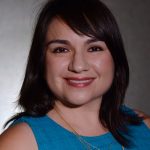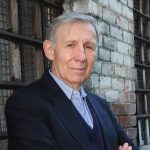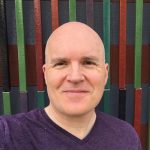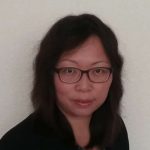
— A two-year series of seminars, lectures and films that explores interethnic and intercultural issues —
The Mellon Advancing Intercultural Studies (Mellon AIS) project sponsors four academic seminars over two years. Each seminar focuses on an aspect of intercultural engagement, connecting and contributing to the goals of the overarching project. In addition to academic seminars, the project hosts public lectures and free film screenings designed to engage public audiences in the project themes.
Learn about upcoming public events in this series by visiting our Events page.
For more information about the project, click the + links below to expand/contract the page.
The FILM FOR THOUGHT series of documentaries, shorts and films explores intersecting project themes of inequality, diversity, religion and history.
Films are hosted at the Culver Center of the Arts, 3824 Main Street, Riverside.
☼ S U M M E R
| Film | Date | Time | Length |
|---|---|---|---|
| Dark Money | July 19, 2019 | 7 PM | 1h 39m |
| July 20, 2019 | 3 PM | 7 PM |
||
| For Ahkeem | July 26, 2019 | 7 PM | 1h 30m |
| July 27, 2019 | 3 PM | 7 PM | ||
| Bisbee ’17 | August 2, 2019 | 7 PM | 2h 4m |
| August 3, 2019 | 3 PM | 7 PM | ||
| Of Fathers and Sons | August 9, 2019 | 7 PM | 1h 39m |
| August 10, 2019 | 3 PM | 7 PM |
—
✿ S P R I N G
| Film | Date | Time | Length |
|---|---|---|---|
| King in the Wilderness | February 22, 2019 | 7 PM | 1 h 51m |
| February 23, 2019 | 3 PM | 7 PM |
||
| Minding the Gap | March 2, 2019 | 3 PM | 7 PM | 1h 40m |
| Generation Wealth | March 7, 2019 | 7 PM | 1h 48m |
| March 8, 2019 | 7 PM |
—
Visit the Events page for more details.
Polarity, Diversity, Confluence
Mellon Advancing Intercultural Studies Conference
an interdisciplinary exploration in the intersections of economic inequality, religious identity, contested histories and diversity in higher education
Date: March 7 & 8, 2019
Location: CHASS INTS 1113
8:30 AM | Registration
9:00 AM | Welcome
9:30 AM | Session 1
11:15 AM | Undergraduate Panel
1:30 PM | Session 2
1:30 PM | Session 3
Student panelists include:
- Kai Cheang (English)
- Michaela Curran (Sociology)
- Stephen Omar El-Khatib (Political Science)
- Hassanah El-Yacoubi (Religious Studies)
- Lawrence Lan (Ethnic Studies)
- Josh Little (History)
- Carly Maris (History)
- Danielle Mireles (Education)
- Evelyn Pruneda (Sociology)
- Rabea Qamar (Education)
- Yoon Ro (Economics)
- Dylan Rohr (Political Science)
- Kevin Sliwoski (Music)
- Evan Suda (History)
5:00 PM | Keynote and Reception
Muhamad Ali (Religious Studies & Middle East and Islamic Studies Program, UCR)
Religious Difference and The Common Good
How and why have we become in some cases tolerant of religious difference and intolerant of it in other cases? How and why can we benefit from religious difference and work for the common good?
—
Location: CHASS INTS 1113
9:00 AM | Welcome
9:30 AM | Session 1
Steve Brint | The Inversion of Class Conflict in the U.S?
Respondents: Alejandra Dubcovsky, Katya Guenther, Rita Kohli
11:00 AM | Session 2
Stephanie Wilms | ‘Man’s Reasonable Companion’: Women’s Primacy in the Formation of New Islamic Movements.
Respondents: David Brady, Carlos Cortés, Victoria Reyes
1:30 PM | Session 3
Jennifer Nájera | Undocumented Education: Undocumented Students and the University
Respondents: Covadanga Lamar Prieto Stephen Sohn, Stephanie Wilms
3:00 PM | Session 4
Margaret Nash | An Unacknowledged Legacy: Land Grant Colleges and Indian Dispossession.
Respondents: Katja Guenther, Matthew Mahutga, Jennifer Nájera
—
5:00 PM | Keynote and Reception
Location: Alumni & Visitors Center
Thomas Frank
Liberalism Minus Labor: The Democratic Party as an Agent of Professional Interests
Thomas Frank is an American political analyst, historian, and journalist. He co-founded and edited The Baffler magazine. Frank has written several books, most notably What’s the Matter with Kansas? and Listen, Liberal! From 2008 to 2010 he wrote “The Tilting Yard,” a column in The Wall Street Journal.
—
All events free and open to the public.
Complimentary parking will be available in Lot #24. View campus map.
Sponsored by the Center for Ideas and Society and a grant from The Andrew W. Mellon Foundation.
Omissions and questions beset the study of the histories of marginalized groups. The subtitle of a 2003 article on the 1873 Colfax Massacre in which white southerners slaughtered a group of African American citizens who had assembled in a local courthouse after a contested election reads “Stumbling on a forgotten Reconstruction tragedy.” Yet this headline represents the fate of countless similar events in the United States not only during slavery and reconstruction but well afterwards. This seminar focuses on questions of historical scholarship as well as on still under-examined historical events and experiences as they affect contemporary intercultural relations in the United States.
Events
| Title | Date | Location |
|---|---|---|
| Film & Discussion: Harlan County USA |
October 26-27, 2018 | Culver Center of the Arts |
| Vanita Seth: The Politics of the Face |
November 15, 2018 | CHASS INTS 1111 |
—
Participants
Susan Laxton – Convener
 Susan Laxton is an Associate Professor in the Department of the History of Art, specializing in modernism and the history of photography. Her book, Surrealism at Play (Duke University Press, 2019) offers the first critical assessment of the dynamic, collective and destructive strategies operating at the heart of the movement.
Susan Laxton is an Associate Professor in the Department of the History of Art, specializing in modernism and the history of photography. Her book, Surrealism at Play (Duke University Press, 2019) offers the first critical assessment of the dynamic, collective and destructive strategies operating at the heart of the movement.
Professor Laxton’s work has appeared in Critical Inquiry, October and Papers of Surrealism, as well as a number of catalogs and anthologies that treat her main interests: photography, play, and the alternative art practices of the 20th century avant-gardes. She is currently preparing a book manuscript, Post-Industrial Photography, on mid-century photographic practices.
Juana Alba
 I’m a third year student at the University of California Riverside where I’m pursuing a B.A. in Spanish with a concentration in Linguistics. I participated in the FLEAP program this summer, where I got the opportunity to study with professor Covadonga Lamar Prieto, from the Department of Hispanic Studies. We stayed in Spain for a month. While in there, we worked in a project called MECA (Manuscritos y Ediciones de Cartas de Asturianos/ Manuscripts and Editions of Correspondence by Asturians). In my free time I volunteer as a Spanish Tutor, read books especially in Spanish and I love to travel.
I’m a third year student at the University of California Riverside where I’m pursuing a B.A. in Spanish with a concentration in Linguistics. I participated in the FLEAP program this summer, where I got the opportunity to study with professor Covadonga Lamar Prieto, from the Department of Hispanic Studies. We stayed in Spain for a month. While in there, we worked in a project called MECA (Manuscritos y Ediciones de Cartas de Asturianos/ Manuscripts and Editions of Correspondence by Asturians). In my free time I volunteer as a Spanish Tutor, read books especially in Spanish and I love to travel.
Project: This is an archival recovery project in collaboration with the Museu del Pueblu d’Asturies (Museum of the Asturian Peoples). We examine letters from emigrants from Asturias that came to America during XIX and the beginning of XX. The purpose of this project is to tell the story and give the voice to those who left everything, their family, and their homes behind for a better life. During this term, I hope to begin drafting what I expect to be my honors thesis, which will be based on this project.
Esperanza Bey
 Esperanza Bey is a senior at the University of California Riverside where she is pursuing a B.A. In Art History with a Secondary focus in Media & Cultural Studies. She recently completed her three-month internship as an Exhibitions Intern at the Museum of the African Diaspora in San Francisco, CA this past summer. This is her second year working at the Visual Resource Center where she works specifically with materials from the personal research collection of Dr. Aleca Le Blanc. She is currently working on a collaborative visual essay covering “nativity” in the city of Oakland, CA and her own multi-layered relationship to this particular moment of socio-cultural death that is gentrification/ corporate development/ displacement.
Esperanza Bey is a senior at the University of California Riverside where she is pursuing a B.A. In Art History with a Secondary focus in Media & Cultural Studies. She recently completed her three-month internship as an Exhibitions Intern at the Museum of the African Diaspora in San Francisco, CA this past summer. This is her second year working at the Visual Resource Center where she works specifically with materials from the personal research collection of Dr. Aleca Le Blanc. She is currently working on a collaborative visual essay covering “nativity” in the city of Oakland, CA and her own multi-layered relationship to this particular moment of socio-cultural death that is gentrification/ corporate development/ displacement.
Project: During an interview with Ivor Miller on November 6, 1988, Roy DeCarava provided a description for the term known as the “Black Aesthetic.” In the article entitled “If it Hasn’t Been One of Color: An Interview with Roy DeCarava,” DeCarava states: There is a black aesthetic–it comes out of cultural history. Blacks brought with them part of their history and philosophical ideas. In Africa, there was always an emphasis on the spiritual, the mythic. Art was a facet of communications with the gods, a part of everyday life. I think that Africans brought some of those ideas and memories with them and handed them down. The emphasis on the spiritual and the mythic in the everyday life of Black people is prevalent in DeCarava’s collaboration with Langston Hughes for “The Sweet Fly Paper of Life.” Contemporary photographers such as Jamel Shabazz, Deana Lawson, Milbert O. Brown Jr, to name a few, have been successful in capturing the same essence. However, the translation of the Black Aesthetic from photography to contemporary videos and films communicates a better sense of what DeCarava meant when he said the Black Aesthetic is “both an intuitive sense and a conscious choice. A matter of being understood, and being heard.” For my research proposal, I seek to analyze the ways in which contemporary videographers Hype Williams, Khalil Joseph, and Jenn Nikru capture the Black Aesthetic in their work, and to explore the ways in which they are expanding what the Black Aesthetic means in a Post Blackness era.
Alejandra Dubcovsky

Alejandra Dubcovsky is an associate professor of history at the University of California, Riverside. She is also the inaugural fellow in the Program for the Advancement of the Humanities, a partnership of The Huntington and UC Riverside that aims to support the future of the humanities. Her latest book, Informed Power: Communication in the Early American South (2016), won the 2016 Michael V. R. Thomason Book Award from the Gulf South Historical Association. Her latest articles include, “Writing Timucua: Recovering and Interrogating Indigenous Authorship,” co-written with Aaron Broadwell for Early American Studies (2017), “When Archaeology and History Meet: Shipwrecks, Indians, and the Contours of the Early-Eighteenth-Century South,” in the Journal of Southern History (2018), and ” Defying Indian Slavery: Apalachee Voices and Spanish Sources in the Eighteenth-Century Southeast,” in the The William and Mary Quarterly (2018). In 2018, she received a Mellon Advancing Intercultural Studies Grant and a UC Riverside-Universidad Nacional Autónoma de México (UNAM) Faculty Exchange Grant.
Project: My project, At the Frontlines of a Forgotten War, examines the role of women and gender in southern fronts of Queen Anne’s War (1702-1713), an early eighteenth-century war that has been largely overlooked in the historiography. The project has three core questions: what is the role of women and gender in violent conflicts? Who narrates stories of war, loss, and victory? How and why do gender, war, and southern history intersect? Scholars of war and conflict have traditionally focused on men’s experiences. After all, men comprised the armies, engaged in the fighting, and suffered most of the casualties. In short, gender is often not even seen as a variable in war. But I argue that gender is an intersectional and multidimensional concept that structured both the framework and the understanding of Queen Anne’s War.
Emilia Filippini
 Emilia Filippini is a senior pursuing a B.A. in sociology at the University of California, Riverside. Her participation in various research internships during her time at UCR have helped develop her research skills and interests for the future. She has worked in the SETPOL project with tenured professor Christopher Chase-Dunn which consisted of conducting research on wars and battles in Korea and South Asia, the CWON project with assistant professor Victoria Reyes consisting of conducting research on the reputation of Subic Bay, Philippines, and transcribed interviews that Ph.D. candidate Alessandro Morosin conducted in Oaxaca, Mexico of indigenous activists.
Emilia Filippini is a senior pursuing a B.A. in sociology at the University of California, Riverside. Her participation in various research internships during her time at UCR have helped develop her research skills and interests for the future. She has worked in the SETPOL project with tenured professor Christopher Chase-Dunn which consisted of conducting research on wars and battles in Korea and South Asia, the CWON project with assistant professor Victoria Reyes consisting of conducting research on the reputation of Subic Bay, Philippines, and transcribed interviews that Ph.D. candidate Alessandro Morosin conducted in Oaxaca, Mexico of indigenous activists.
Project: It has been found that the presence of the U.S. Subic Bay Naval Base (SBNB) during the years 1901-1992 has had a great influence in shaping present-day Subic Bay, Philippines. The attitudes and views which this organization brought with it, such as their vision for more modern structures, their aim for ongoing sanitation, the strict enforcement of traffic rules, and the strict monitoring of those within its boundaries, are still a big part of what is associated with Subic Bay today. In contrast to this, the surrounding areas can be seen as dated without much emphasis on cleanliness, having more lenient rules, and being home to beggars and street vendors. The lasting impact that the SBNB left also served to establish an intriguing reputation unique to the area. Due to the ideologies and customs of the region, the majority of people who enter Subic Bay seem to fall under a certain spectrum: those who are wealthy, and those who are foreign. Thus, the goal of this project is to empirically examine the reputation effects of the long-standing history of Subic Bay as a U.S. Naval base. I aim to compare Subic Bay’s racialized and gendered reputation across different audiences such as those who work and/or live in Subic Bay, those who live in the surrounding areas, and foreigners.
Joshua Thunder Little
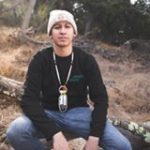 Joshua Thunder Little, a member of the Oglala Lakota Nation, is a current Ph.D. student in History at the University of California, Riverside (UCR). His research interests include Public History and Native American History. He received his B.A. at UCR in History and Native American Studies. He continued his graduate studies at UCR because of the large interdisciplinary presence of Native studies at UCR. He researches the history of water rights in Lakota communities and uses Native epistemologies to bring forth methods to maintain Indigenous sovereign rights through resistance efforts.
Joshua Thunder Little, a member of the Oglala Lakota Nation, is a current Ph.D. student in History at the University of California, Riverside (UCR). His research interests include Public History and Native American History. He received his B.A. at UCR in History and Native American Studies. He continued his graduate studies at UCR because of the large interdisciplinary presence of Native studies at UCR. He researches the history of water rights in Lakota communities and uses Native epistemologies to bring forth methods to maintain Indigenous sovereign rights through resistance efforts.
Project: My research project will focus on the struggle of Lakota communities to maintain sovereignty over their water resources. I will research resistance efforts the Lakota made to maintain their connection with their environment through their traditional teachings. Wolakota, a phrase that translates to, “living a Lakota way of life,” can be utilized as a system of knowledge. Wolakota, is a form of Indigenous sovereignty that will be used in my paper to highlight their resistant efforts. These resistance efforts will demonstrate that the Lakota have maintained their traditions, while at the same time, adapting to their ever-changing environment, remaining resilient people. Utilizing Lakota systems of knowledge will explain their connection to their traditional territories and help develop a methodology to research other Indigenous communities that struggle to maintain sovereign rights over water.
Margaret Nash
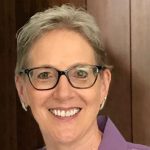 Margaret Nash is a professor at UCR whose research focuses on the history of education in the U.S. She is interested in the relationships between education and citizenship and between education and policy. Her first book, Women’s Education in the United States, 1780-1840 (Palgrave, 2005) won a Critics’ Choice Award from AESA. Her new book is Women’s Higher Education in the United States: New Historical Perspectives (2018). Her academic career followed a decade of advocacy and policy work on issues of educational access and equity for girls and children of underserved populations.
Margaret Nash is a professor at UCR whose research focuses on the history of education in the U.S. She is interested in the relationships between education and citizenship and between education and policy. Her first book, Women’s Education in the United States, 1780-1840 (Palgrave, 2005) won a Critics’ Choice Award from AESA. Her new book is Women’s Higher Education in the United States: New Historical Perspectives (2018). Her academic career followed a decade of advocacy and policy work on issues of educational access and equity for girls and children of underserved populations.
Project: Land grant colleges and universities have long been lauded for democratizing higher education. The Morrill Land Grant Act of 1862 (and its successor Act of 1890) made public land available to states to sell, with the profits going toward the establishment and support of public universities. The 150th anniversary of the Act was celebrated in 2012, and historians took the opportunity to rethink the narrative about the Land Grant Acts and the meaning, purposes, and impacts of the universities. Nowhere in this literature has anyone asked about the land itself. Land grant institutions depended on land being sold by the federal government. What land was sold? How did the U.S. Government have claim to that land? To what extent are land grant colleges founded on the dispossession of American Indians from their land? In the history of land grants, racism and Indian dispossession is nearly always talked about as an aside: yes, that happened, but that wasn’t the point of the land grants. But actually — it was part of the point. The Morrill Land Grant Act was part and parcel of the federal government’s quest to settle the continent with white people; the Act was passed the same year as the Homestead Act, which also made cheap land available as incentives for whites to move West. In effect, establishing colleges and universities was the aside, not the Indian dispossession. I am interested in tracing the details of that dispossession.
Covadonga Lamar Prieto
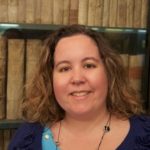 My research interest is how first generation individuals adjust to a society different from that of their parents. I have examined that in XIX Mexico and XIX and contemporary California, and from the combined perspectives of Literature, Linguistics and History. The focus of my book Californios, historia sociolingüística de California en el XIX is describing the use of Spanish in the area, and the cultural and social processes that transformed Spanish language into an ethnic language. I do that by examining previously unpublished manuscripts from the XIX that have been hidden in archives for more than a century.
My research interest is how first generation individuals adjust to a society different from that of their parents. I have examined that in XIX Mexico and XIX and contemporary California, and from the combined perspectives of Literature, Linguistics and History. The focus of my book Californios, historia sociolingüística de California en el XIX is describing the use of Spanish in the area, and the cultural and social processes that transformed Spanish language into an ethnic language. I do that by examining previously unpublished manuscripts from the XIX that have been hidden in archives for more than a century.
Project: Spanish language has been present in California since the Eighteenth century. It arrived as a colonizer language and obliterated a great amount of the languages and cultures present in the area. After approximately a century, and with the incorporation of California to the US in 1848, Spanish became then a colonized language. During the long XIX century, the Spanish speakers of the area -also known as Californios-, organized their societies, wrote and lived in Spanish. Sometimes only in Spanish, some other times in Spanish and other languages as well. The texts of these Californios have been rarely published or studied. On my visits to different archives, I have come across a series of documents that are going to constitute my second book, Californio Literature: An Unknown Chapter of US Latino Literature. I intend to edit two previously unpublished plays, one of them authored by Governor Pío Pico, and a series of also unpublished poetry from different authors, Mariano Guadalupe Vallejo among them. These texts are a testimony to the political and social life of the Californios in the XIX, and one testimony that has been obliterated by the Manifest Destiny and their historical perspective. The history of the Californios has to be contested: the texts that I have recovered confront the pastoral idea of the Californios as a lazy group of eager new Americans that has reached our days. My objective for this seminar is working on the introduction of the book, in which I plan to examine the historical capital that these texts convey.
Ayanna McDowell
I am Ayanna McDowell. I am originally from Inglewood, CA. I am currently in my third year at UC Riverside, and study History as my major. I particularly enjoy studying History with a concentration in Civil Law. In my free time I enjoy reading books, swimming, working at my job, and of course studying all aspects of history.
My research project will focus on the Civil War, and I’m looking forward to doing further research and understanding the perspectives and reasoning to why the U.S went to war within. What was the true reason the North decided to go to war with the south; was it due to the immoral act of of slavery or financial gains?
Evelyn Pruneda
 Evelyn Pruneda is a Ph.D. student in the department of sociology at UCR. Her areas of specialization are race and class inequality and gender studies. Her research uses a feminist intersectional framework to explore the lives and working conditions of rural Latinx farmworkers. Her work examines how race and gender interacts with social and spatial inequalities, specifically in the areas of labor, water politics, residential segregation, and family dynamics. She received her B.A. in Politics from Occidental College, a Master of Public Administration from California State University, Fresno, and a M.A. in Sociology from UCR.
Evelyn Pruneda is a Ph.D. student in the department of sociology at UCR. Her areas of specialization are race and class inequality and gender studies. Her research uses a feminist intersectional framework to explore the lives and working conditions of rural Latinx farmworkers. Her work examines how race and gender interacts with social and spatial inequalities, specifically in the areas of labor, water politics, residential segregation, and family dynamics. She received her B.A. in Politics from Occidental College, a Master of Public Administration from California State University, Fresno, and a M.A. in Sociology from UCR.
Project: Mujeres Trabajadoras: An Intersectional Perspective on Inequalities Among Mexicana Farmworkers in San Joaquin Valley. This qualitative study uses a feminist intersectional perspective to examine how the lives and working conditions of Mexican women farmworkers are shaped by inequalities that are exacerbated by the historic California drought (2011-2016). My research is based on 20 in-depth interviews with Mexicana farmworkers in the San Joaquin Valley, a community that is bound together by a shared history, but that exhibits an incredible amount of diversity and difference. Although many women farmworkers face multiple axes of oppression based on their race, class, gender, and citizenship status, the inequalities they face are not only in relation to the dominant power structures that undergird the corporations that employ them. Instead, this work seeks to understand the inequalities that exist within the group in order to shed light on how larger structural forces interact with the lived experiences of one of the most disenfranchised populations.
Victoria Reyes
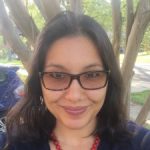 Victoria Reyes is an assistant professor of sociology at UCR. Her research examines the relationship between culture and global inequality and her book, Global Borderlands: Fantasy, Violence, and Empire in Subic Bay, Philippines is forthcoming (summer 2019) from Stanford University Press. She’swritten for the Monkey Cage at the Washington Post, and Inside Higher Ed,received fellowships from the Institute of International Education (2006-2007 Fulbright Scholar to the Philippines), National Science Foundation (2009-2012 Graduate Research Fellowship), and American Sociological Association (2014 Minority Fellowship Program), and grants from the American Sociological Foundation and National Science Foundation (ASA Fund for the Advancement of the Discipline), and UCR’s Blum Initiative on Global and Regional Poverty (Faculty Research Seed Grant), among others.
Victoria Reyes is an assistant professor of sociology at UCR. Her research examines the relationship between culture and global inequality and her book, Global Borderlands: Fantasy, Violence, and Empire in Subic Bay, Philippines is forthcoming (summer 2019) from Stanford University Press. She’swritten for the Monkey Cage at the Washington Post, and Inside Higher Ed,received fellowships from the Institute of International Education (2006-2007 Fulbright Scholar to the Philippines), National Science Foundation (2009-2012 Graduate Research Fellowship), and American Sociological Association (2014 Minority Fellowship Program), and grants from the American Sociological Foundation and National Science Foundation (ASA Fund for the Advancement of the Discipline), and UCR’s Blum Initiative on Global and Regional Poverty (Faculty Research Seed Grant), among others.
Project: The history of the U.S. is a history of global empire around the world. In 1898, the Philippines, was transferred from Spain to the U.S., and in 1946, the Philippines was recognized as a sovereign nation-state. However, U.S. power continued to rule, economically, socio-culturally and in the form of overseas U.S. military bases. This project interrogates who gets to write, and decide, the history of Subic Bay and Clark, Philippines—and, thus, the history of U.S.-Philippine military relations and the U.S. around the world. The U.S. military withdrew from their bases in the Philippines in 1992, and in this project, I turn attention to two of its major bases: U.S. Subic Bay Naval Base and U.S. Clark Air Force Base. These two bases are often lumped together in scholarship surrounding the U.S. military in the Philippines. In doing so, researchers have long ignored important differences between the bases and Filipino responses to them. For example, although the bases were geographically near one another and their formation and closure took place in similar political circumstances, one community looted the base, while the other took over the base to keep it from being looted. Drawing on Philippine newspaper archives, legal cases, and published oral histories, this paper will argue thatthe sex industry and community responses to the U.S. withdrawal are linked, and that these differences are the result of the social organization of the navy versus the air force, the unintended consequences this had for the sex trade and local communities, and competing on-the-ground understanding of these bases and their surrounding areas: as symbols of U.S. empire and/or of “the good life” by Filipinos and Americans alike.
Dylan Meidell Rohr
 Dylan Meidell Rohr is a Ph.D. student in the department of Political Science at the University of California, Riverside. His research focuses on the plight of the white working class of rural America. In particular, his research examines the ways in which this community’s support for Donald Trump in 2016 can best be understood by analyzing the situation and actions of the white working class through the literature on recognition and identity politics. His research also focuses on the contributions of existentialist philosophers such as Simone de Beauvoir to better theorize problems of today’s political world.
Dylan Meidell Rohr is a Ph.D. student in the department of Political Science at the University of California, Riverside. His research focuses on the plight of the white working class of rural America. In particular, his research examines the ways in which this community’s support for Donald Trump in 2016 can best be understood by analyzing the situation and actions of the white working class through the literature on recognition and identity politics. His research also focuses on the contributions of existentialist philosophers such as Simone de Beauvoir to better theorize problems of today’s political world.
Project: Whether it is along class, racial, gender, sexuality, religious, moral, or more encompassing cultural lines, the cultural divide in America seems to have become more prominent in recent decades with the election of Donald Trump as the culmination of these divisions. Many on the right have blamed identity politics on the left for the worsening of this divide since the Civil Rights Movement. While this may have contributed in some ways, one should not look past the ways in which the actions and sentiments of the white working class operate like the identity politics advocates they criticize. However, identity politics advocates should not look over the relevancy of the identity of the white working class. Though often thought to be “mainstream”, recent literature has made clear that white working class Americans have experiences far different from what is often considered to be the norm. They are in this way, a distinct identity which should be recognized. While I believe this to be the case, one must also ask how they should call for recognition and how they should be recognized? As part of this project I hope to explain and illustrate the ways in which a group can fight for recognition without diminishing the recognition of other groups.
Kevin Sliwoski
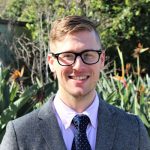 Kevin Sliwoski is a Ph.D. candidate in music with research interests in sound studies, U.S. Military history, and global jazz. His dissertation is a history of the U.S. Navy in the Philippines during the 1950s and 1960s. Kevin holds master’s degrees in U.S. History and Musicology from the University of Oxford. He earned a Bachelor of Arts in Music from the University of Hartford. He has interned at the Naval History and Heritage Command and is currently an intern at the Marine Corps Recruit Depot, San Diego Museum.
Kevin Sliwoski is a Ph.D. candidate in music with research interests in sound studies, U.S. Military history, and global jazz. His dissertation is a history of the U.S. Navy in the Philippines during the 1950s and 1960s. Kevin holds master’s degrees in U.S. History and Musicology from the University of Oxford. He earned a Bachelor of Arts in Music from the University of Hartford. He has interned at the Naval History and Heritage Command and is currently an intern at the Marine Corps Recruit Depot, San Diego Museum.
Project: For this seminar I will focus on how to write histories of military wives and families and their lives at overseas military bases through their experiences with sound and music. I am interested specifically in Navy wives and families stationed overseas during the twentieth century. Writing about music and sound is often the most perplexing aspect of music studies. How do we use sound to write history, and how can we convert sonic abstractions into concrete histories? How do we hear the past without recordings? Historians and music scholars regularly neglect sound, music, and civilian life at military bases. Scholars also tend to treat civilians as supporting or background figures in narratives that glorify service members and political leaders. Although these people are not deliberately marginalized or ignored, their voices are missing. Military bases too, are difficult research subjects and communities to engage with and to study. With this project, I hope build on previous research dedicated to women and the military, and to expand the dialogue between military studies and sound studies. This work will support my dissertation research about the U.S. Navy in the Philippines during the 1950s and 1960s. My goal is to write a history through sound by reading military sources obliquely for the sonic, and to comment on U.S. military policy and culture overseas.
Evan Daniel Suda
Evan Daniel Suda (PhD History, Chancellor’s Distinguished Fellowship) BA History and BA Creative Writing with an emphasis in Non-fiction writing, 2017, University of Redlands. Evan is a second year PhD student at UC Riverside whose interests include Native American and Spanish relations in colonial California prior to 1850 with an emphasis on native resistance, intimate relationships, and illegitimacy. His undergraduate honors thesis examined participants in the 1824 Chumash Rebellion using GIS. Evan has also worked as a Graduate Student Researcher on the Pobledores Database, an online digitized achieve of California mission records and early California censuses.
Project: The eighteenth century is colloquially known as the century of illegitimacy by scholars who study sexuality and intimacy. Such thinking has produced interesting studies on the topic, however Spanish colonial California prior to 1850 has remained largely unexamined in this regard. With the use of digital achieves like the Early California Population Project, it has become increasingly possible to examine illegitimacy as it was observed by Franciscan priests at an individual’s Catholic baptism. The ECPP also allows for a prolonged look at these illegitimate individuals by examining the sacramental lives of their families. This paper will first endeavor to locate the experience of observed illegitimacy in colonial Spanish California into the larger understanding of illegitimacy globally in the eighteen and early nineteenth century. Secondly, this paper will seek to further position Californian illegitimacy within other areas influenced greatly by Catholic Spanish ideas about marriage, intimate relationships, and honor. Finally and most crucially, examining 1407 individuals who were indicated by Spanish priests as illegitimate, this paper will determine to what ends the mark of “illegitimate” affected the lives of these individuals in colonial California. Previous scholarship, most noticeably the work of Ann Twinam in Latin America, has demonstrated that a loss of honor from extramarital relations negatively impacted the marriage prospects of women and often resulted in illegitimate children. Similarly, Twiman has shown illegitimacy as a bar to certain political and religion positions for men. This paper seeks to evaluate these ideas in colonial California.
The FILM FOR THOUGHT summer series of documentaries, shorts and films explores intersecting project themes of inequality, diversity, religion and history.
Films are hosted at the Culver Center of the Arts, 3824 Main Street, Riverside.
| Film | Date | Time | Length |
|---|---|---|---|
| Economics of Happiness | July 20 | 7 PM | 67 minutes |
| Abacus: Small Enough to Jail | July 21 | 3 PM / 7 PM |
89 minutes |
| Tell Them We Are Rising | July 27 | 7 PM | 95 minutes |
| Race to Nowhere | July 28 | 3 PM | 85 minutes |
| Night School | July 28 | 7 PM | 85 minutes |
| One of Us | August 3 | 7 PM | 95 minutes |
| The Noble Struggle of Amina Wadud | August 4 | 3 PM | 29 minutes |
| Breaking Silence | August 4 | 5 PM | 40 minutes |
| Mosque in Morgantown | August 4 | 7 PM | 54 minutes |
| En El Séptimo Día (On The Seventh Day) | August 10 | 7 PM | 97 minutes |
| I Am Not Your Negro | August 11 | 3 PM | 93 minutes |
| Strong Island | August 11 | 7 PM | 107 minutes |
Visit the Events page for more details.
This seminar will examine issues of religious identity and diversity. The United States is one of the most religiously diverse countries in the world. Academic discourses and publication on religious harmony, tolerance, pluralism, and freedom have developed significantly. Yet religious diversity also takes other forms: religious tension, conflict, violence, terrorism, and discrimination. The terrorist shootings in San Bernardino near Riverside, the killings in Orlando, the shootings of Sikhs, and the 2016 Presidential Campaign, have raised fears of an increased Islamophobia. The ongoing Israeli-Palestinian conflict, the Syrian civil war, and the Muslim Rohingya issue in Buddhist Burma, have raised tension and public debate about the role and impacts of religious identity more globally. This seminar will consider questions of religious identity and diversity, violence and peace, discrimination and harmony, hate speech and love activism, and the vexed relation between religion and politics. Undergraduate student support provided by a gift from Ada Berman and Brent Bradley.
Events
| Title | Date | Location |
|---|---|---|
| Film & Discussion: Adio Kerida (Goodbye Dear Love) |
May 11 & 12 | Culver Center of the Arts |
| Jack Miles: event cancelled |
||
| Flor Edwards: Writing as Forgiveness | May 29 |
HMNSS 1500 |
—
Participants
Georgia Warnke, Convener/Distinguished Professor of Political Science
Stephen El-Khatib, Graduate Student, Political Science
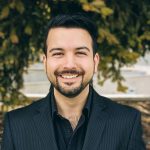 Stephen Omar El-Khatib is a political science PhD student at the University of California, Riverside. El- Khatib’s research primarily focuses on the politics of race, immigration, and ethnicity through the lenses of behavioral and comparative politics. Much of El-Khatib’s existing and continued work evaluates discrimination and public policy, and is inspired by his experiences as a first-generation Arab-American Muslim.
Stephen Omar El-Khatib is a political science PhD student at the University of California, Riverside. El- Khatib’s research primarily focuses on the politics of race, immigration, and ethnicity through the lenses of behavioral and comparative politics. Much of El-Khatib’s existing and continued work evaluates discrimination and public policy, and is inspired by his experiences as a first-generation Arab-American Muslim.
Research: The Muslims Next Door: How Proximity to Mosques Impacts Political Attitudes | Reports of hate crime, vandalism, and protest targeting religious establishments have exponentially increased over the past decade in the United States. This study seeks to understand whether proximity to outgroup religious establishments impacts national policy attitudes. We contend that proximity to places of outgroup religious congregation activates outgroup threat and drives individuals to support invasive government surveillance programs. To test our claims, we develop an innovative dataset which geographically contextualizes responses captured by election studies surveys in proximity to various religious establishments. We demonstrate that non Muslim proximity to Muslim places of congregation increases support for the National Security Agency’s Foreign Intelligence Surveillance Act. Additionally, we conduct interviews in and around neighborhoods with minority religious establishments to provide further evidence of such a proximal impact and to rule out potential endogenous confounders. Our results confirm our initial hypotheses, and provide critical nuance previously missing within the extant literature. Additionally, we further prevailing theories that speak directly to racialization, out-group contact, and threat.
Hassanah El-Yacoubi, Graduate Student, Religious Studies
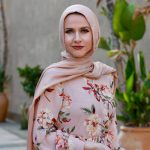 Hassanah El-Yacoubi is a doctoral student in Religious Studies at the University of California, Riverside. She focuses on women in Islam, specifically on the role identity and body politics have played in reversing the narrative on American Muslim women. Her research revolves around emerging Muslim subjectivities cultivated by millennials through the global phenomenon of Islamic fashion, which has altered the ways in which Muslim identity is performed and perceived. She is also a leading fashion and lifestyle blogger where she is dedicated to creating cross-cultural and inter-religious understanding through fashion, and was ranked as a top modest fashion influencer by The Huffington Post.
Hassanah El-Yacoubi is a doctoral student in Religious Studies at the University of California, Riverside. She focuses on women in Islam, specifically on the role identity and body politics have played in reversing the narrative on American Muslim women. Her research revolves around emerging Muslim subjectivities cultivated by millennials through the global phenomenon of Islamic fashion, which has altered the ways in which Muslim identity is performed and perceived. She is also a leading fashion and lifestyle blogger where she is dedicated to creating cross-cultural and inter-religious understanding through fashion, and was ranked as a top modest fashion influencer by The Huffington Post.
Research: The female Muslim body has been tainted by the agonizing effects and aftermath of European colonialism. For centuries, Muslim women have been depicted as “downtrodden”, “second class citizens”, “oppressed”, “subjugated”, “secluded”, “women of cover”, “caged virgins”, etc. throughout Western and orientalist discourses, literature, and mainstream media. Yet, recently these views have been disrupted through mediated and material practices such as the Muslim modest fashion global phenomenon. This research study will examine the ways in which many Muslim women living in the West are articulating new forms of self-expression through performance and corporeality within the public sphere in ways that challenge the hegemonic discourses that have traditionally framed the debate around Islam, the body, and religious identity. Female Muslim subjectivities are in a constant state of negotiation defined through or in reaction to the discourses and knowledge constructed about Muslim womanhood. Western representations of Muslim women depict a homogenized and afflicted group of women with foreign dress codes and cultural ways. Yet, the modest fashion phenomenon serves as an epistemic project that destabilizes hegemonic narratives and discourses on veiled bodies in the twenty first century through an epistemological corrective and articulation of normativity. How can we account for this cultural shift in history where Muslim women are experiencing heightened levels of inclusivity, visibility, and representation throughout mainstream media, markets, and pop culture? This project will explore the ways in which Muslim women are giving new meaning to the performance of their marked bodies through modest fashion by asserting the visual value of their voices and bodies.
Katja Guenther, Associate Professor of Gender & Sexuality Studies
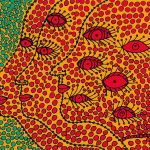 Katja M. Guenther is Associate Professor of Gender & Sexuality Studies. Her research focuses on gender, social movements (particularly feminist activism and gender politics), and critical animal studies. She is the author of Making Their Place: Feminism After Socialism in Eastern Germany (Stanford University Press, 2010), and her papers have appeared in Gender & Society, Journal of Contemporary Religion, Politics & Gender, Signs, Social Movement Studies, Social Problems, and Sociological Forum, among others.
Katja M. Guenther is Associate Professor of Gender & Sexuality Studies. Her research focuses on gender, social movements (particularly feminist activism and gender politics), and critical animal studies. She is the author of Making Their Place: Feminism After Socialism in Eastern Germany (Stanford University Press, 2010), and her papers have appeared in Gender & Society, Journal of Contemporary Religion, Politics & Gender, Signs, Social Movement Studies, Social Problems, and Sociological Forum, among others.
Research: During the Mellon Seminar, Professor Guenther will be engaged with examining how the organizational culture of New Atheist Movement reproduces gender inequalities and excludes women, even in the absence of explicitly sexist organizational ideologies and the presence of a purported commitment to gender egalitarianism. She will consider how this movement engages in gender avoidance, or the failure to interrogate ideologies, beliefs, and practices that support the persistence of gender inequalities. Her work further considers how the New Atheist Movement uses the foil of the gender practices of Mormons and Muslims to position itself as woman-friendly. The paper she will be working on during the workshop period, which draws on extensive interview and ethnographic data with participants in the New Atheist Movement, will comparatively analyze how the New Atheist Movement uses claims about the gender dynamics of Mormonism and Islam as a basis for building movement identity, even as the movement seeks to counter discrimination and promote religious equality and does little itself to integrate women.
Danielle Kennelly, Undergraduate Student, Middle East & Islamic Studies
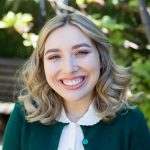 All my life I have loved learning. I love learning about different cultures, religions, and languages. I am also passionate about political justice and human rights. Because of this, I found a happy balance studying both Middle East and Islamic Studies as well as Political Science at the University of California, Riverside. I am so blessed and recognize the privilege that I have to advance my education, and I desire to use what I have learned to fight for social and political equality in our world. I am passionate about LGBTQ+ rights, religious rights, women’s rights, just immigration law, and ending the racism that prevails in our society, constitution, and criminal justice system. I believe in putting words into action, and am excited about my future in law and politics to help bring a change to our world.
All my life I have loved learning. I love learning about different cultures, religions, and languages. I am also passionate about political justice and human rights. Because of this, I found a happy balance studying both Middle East and Islamic Studies as well as Political Science at the University of California, Riverside. I am so blessed and recognize the privilege that I have to advance my education, and I desire to use what I have learned to fight for social and political equality in our world. I am passionate about LGBTQ+ rights, religious rights, women’s rights, just immigration law, and ending the racism that prevails in our society, constitution, and criminal justice system. I believe in putting words into action, and am excited about my future in law and politics to help bring a change to our world.
Research: My research project will cover the complex and controversial idea of the separation of church and state, mainly focusing on the narratives that surround Christianity and Islam in the United States. Many Americans claim that they desire the separation of religion in our constitution, government, and overall political system, yet Christianity prevails throughout American politics. “IN GOD WE TRUST” is plastered across American dollars, our national anthem claims that we are “one nation, under God,” and each year the White House proudly displays a Christmas tree. However, this does not seem to be an issue to many Americans. While many secularists fight for religion to remain outside of schools, that appears to be where the conversation ends. Comparatively, Islam does not share the same privilege. In mainstream media, messages and images of “Sharia Law” are plastered everywhere, depicted as a controlling, dangerous, and undemocratic system of authority that will end with America in shambles. Therefore, my research project will analyze this difference between the two religions in the American political sphere, diving into the prevalence of Islamophobia in the United States. I seek to answer where this tension derives from, what fuels it, how these disparities influence the views of American citizens on the two religions, the hypocrisy of many American Christians, and the repercussions that Muslim Americans face due to this inequality.
Maria Larrea, Undergraduate Student, Religious Studies & Philosophy
 I am a “non-traditional” student, whose interest in majoring in Philosophy and Religious Studies were inspired by traveling the world for the past 15 years to better understand those religions, cultures and conflicts. I chose to grow and understand my views and philosophies by learning and experiencing others’ views, cultures and religions. The diversity of my travels includes: The Amazons (staying with the Achuar Indians); the Galapagos (theory of evolution); Bali (Hinduism); Mexico (Catholicism and ancestral traditions); Peru (Christianity and mysticism in the Andean traditions); Hawaii (Christianity and shamanism for 8 years); Sedona, AZ (Christianity and Hopi traditions for 2 years); as well as Italy, Greece and Egypt (Catholicism, philosophy, Islamic and ancient religions). In my travels I have personally experienced the conflicts produced by the diversity of and misunderstandings in religion.
I am a “non-traditional” student, whose interest in majoring in Philosophy and Religious Studies were inspired by traveling the world for the past 15 years to better understand those religions, cultures and conflicts. I chose to grow and understand my views and philosophies by learning and experiencing others’ views, cultures and religions. The diversity of my travels includes: The Amazons (staying with the Achuar Indians); the Galapagos (theory of evolution); Bali (Hinduism); Mexico (Catholicism and ancestral traditions); Peru (Christianity and mysticism in the Andean traditions); Hawaii (Christianity and shamanism for 8 years); Sedona, AZ (Christianity and Hopi traditions for 2 years); as well as Italy, Greece and Egypt (Catholicism, philosophy, Islamic and ancient religions). In my travels I have personally experienced the conflicts produced by the diversity of and misunderstandings in religion.
Research: My focus is on the Abrahamic religions, namely Judaism, Christianity and Islam and their belief in the same God, the God of Abraham. I am interested in their common aspects (Monotheism, Theological continuity, importance of Jerusalem & significance of Abraham); their differences (worship and religious rites, circumcision, food restrictions and sabbath observance); and dialogue between these religions. Statistically, as of 2005, estimates that 54% of the world populations are adherents of the Abrahamic religion. As of 2012, the statistics remained similar, with a slight increase, worldwide; 33.51% Christians (2.4 billion), 23% Muslims (1.6 billion) and .2% Jews (14 million). My interest and why I picked this topic is because I want to better understand why over 50% of the population, with similar origins, seem to be so divided and are the differences so vast that understanding and respecting each other ever be achieved. Historically, religion has been at the center of conflicts; this is not a thing of the past. Today, the reality is that numerous conflicts in our world are religious in nature. To claim that the motivations for conflicts today are only social, economic or political is to elude peace. Thus, the easiest way to possibly bring about reconciliation is through dealing directly with the religious issues. It is interesting to note that each of the three religions adhered to creating peace even though they may not have begun in peace. The question I would like to explore, on the basis of a particular case study, is why is there the belief that “my God is bigger than your God, when they are the same God?”
Carly Maris, Graduate Student, History
 Carly Maris is a doctoral candidate in the UCR History Department working under Professor Michele Salzman. She holds a B.A. in Medieval Studies from UC Davis, and an M.A. in Classics from UC Irvine. Carly’s research primarily focuses on the transmission of cultural objects from West Asia into Rome for military parades, using theories in Public History to provide theoretical frameworks through which to view the role of processions in ancient communities. Carly likewise is interested in the destruction of ancient sites and objects in contested areas in the Middle East. In 2017 Carly founded Voices of Ancient Palmyra, a project dedicated to making publicly available translations of ancient Palmyrene inscriptions for anyone to use, and to provide a platform for students of history to engage actively in preserving Ancient Palmyrene history, through new media and artistic recreations.
Carly Maris is a doctoral candidate in the UCR History Department working under Professor Michele Salzman. She holds a B.A. in Medieval Studies from UC Davis, and an M.A. in Classics from UC Irvine. Carly’s research primarily focuses on the transmission of cultural objects from West Asia into Rome for military parades, using theories in Public History to provide theoretical frameworks through which to view the role of processions in ancient communities. Carly likewise is interested in the destruction of ancient sites and objects in contested areas in the Middle East. In 2017 Carly founded Voices of Ancient Palmyra, a project dedicated to making publicly available translations of ancient Palmyrene inscriptions for anyone to use, and to provide a platform for students of history to engage actively in preserving Ancient Palmyrene history, through new media and artistic recreations.
Research: The tensions and negotiations that occurred between religious institutions, political representatives, and ethnic groups are important for understanding the maintenance and expression of empire in and over territories in Ancient Syria, especially during the period of Roman imperialism. This project looks at one particular historical moment in ancient Syrian history–the Roman invasion under Emperor Aurelian in 272 CE–and focuses on the relationship between the Roman emperor and local Christian communities. At this time, the empire of Palmyra had risen in power and had fought for control of Syrian territories, having recently rebelled against the Romans in the region. While scholarship has explored the ethnic identities of local communities involved in the rebellion and war with Rome, this project focuses on the role Christian communities played in the wars for imperial control over Syria. According to several ancient authors, notably Eusebius, Emperor Aurelian worked with local Christian communities to remove Palmyrene-supporting officials from the region. However, these sources also say that Aurelian was later planning a Christian persecution, but was killed by his troops before he could begin the enterprise. This project looks to further discussions about Aurelian’s treatment of Christians, and the role Christian groups played in the negotiation of empire over Syrian territories, by exploring the relationship between Syrian Christians and Aurelian during the Roman campaign in the East. To do this, I examine contemporary inscriptions in Syria, looking at evidence that reveals the networks of ethnicity and Christianity that existed during the time of Aurelian’s Eastern campaign.
Rewa Ousman, Undergraduate Student, Global Studies
 I have always been passionate about religious tolerance and human rights and hope to make a law and activism career out of these in the future. Being a first-generation Syrian and Muslim American, I understand what it means to be a target in a marginalized community and how my identity can be used for and against me. For this reason, I am pursuing a degree in Global Studies to better understand the social, political, and economic forces that allow discrimination and marginalization to be strongholds in our global society and how to counteract these forces while uplifting suppressed communities.
I have always been passionate about religious tolerance and human rights and hope to make a law and activism career out of these in the future. Being a first-generation Syrian and Muslim American, I understand what it means to be a target in a marginalized community and how my identity can be used for and against me. For this reason, I am pursuing a degree in Global Studies to better understand the social, political, and economic forces that allow discrimination and marginalization to be strongholds in our global society and how to counteract these forces while uplifting suppressed communities.
Research: There is a misconception that all Muslim women share the same religious identity: they are submissive to their male counterparts and forced to bargain with patriarchy while they devote themselves to a God who allows for their inferiority to prevail. Being a Muslim woman myself, I understand that there are many hidden crevices behind a Muslim woman’s veiled religious identity. Through the acquiescence of empirical evidence, I hope to put names to the faces of the Muslim women who interpret their religious identities in ground-breaking ways that defy the stereotypes attached to these women. I hope to uncover the diverse relationships various Muslim women have with God and how these relationships motivate them rather than hinder them in their endeavors. Perhaps most important of all, I wish to give these women the opportunity to interpret their own religious identity on their own terms and in their own words. Therefore, I will be analyzing these women’s distinctive religious identities and how they connect to social stigma in order to unveil the spaces and communities they have cultivated for themselves. The research will mostly consist of women who are immigrants or first-generation Americans; thus, the American social structure will be examined by myself and the respective women whom I interview in order to acquire a well-rounded understanding of the social forces that uplift and/or hinder Muslim women. This research will not uncover one overarching religious identity, but will be an accumulation of Muslim women’s own interpretations of their identity through the universal teachings of Islam.
Rabea Qamar, Graduate Student, Education
 Rabea Qamar is a doctoral candidate in the Education, Society and Culture program at the University of California, Riverside. Her research interests include religion and education, ‘racialization’ of religion, stigmatized identities in education, K-12 and higher education campus climate, and critical race theory. Her dissertation research examines the political and cultural ‘racialization’ of Muslims in the US, its impact on Muslim youth’s experiences in schools, and its influence on their participation and sense of community in schools.
Rabea Qamar is a doctoral candidate in the Education, Society and Culture program at the University of California, Riverside. Her research interests include religion and education, ‘racialization’ of religion, stigmatized identities in education, K-12 and higher education campus climate, and critical race theory. Her dissertation research examines the political and cultural ‘racialization’ of Muslims in the US, its impact on Muslim youth’s experiences in schools, and its influence on their participation and sense of community in schools.
Research: Although Muslims represent only 1% of the total US population (Lipka, 2016), Islamophobia and fear of Muslims are rampant throughout the media. Politicians often use terminology (e.g., radical Islamists or Islamic extremists) that implicates the whole of Muslim population as prone to extremism and violence. Such discourses and representations may contribute to increased anti-Muslim hate crimes, including harassment of Muslim children in schools (Mogahed & Chouhoud, 2017). I focus on the representation of Muslims in textbooks and curricular materials used in high school History and Social Studies courses. In particular, I will explore textbook definitions of ‘terrorism’, discussions of September 11, the type of representation given to Muslims, and the amount of textbook space given to understanding this population. This research project will also draw from recent events and rhetoric that do not support protections for Muslim youth against harassment in schools, and resist additional content for understanding Islam and Muslims. This project is a part of my dissertation research, which will examine the representations and experiences of Muslims in high schools. The project will draw on Critical Race Theory (CRT) and the concept of ‘racialization’ to examine textbooks. Though CRT and the concept of ‘racialization’ are used to discuss race and its social construction, I will use both to discuss the ways Islam and Muslims may be racialized (given racial meaning) in high school History and Social Studies textbooks. I use ‘racialization of religion’ (Joshi, 2006) to examine the ways textbook discourse and assumptions may portray archetypal images of Muslims and perceptions of Islam that are similar to the ways Muslims are perceived outside of school.
Anai Reyes, Undergraduate Student, Philosophy & Psychology

Research: The Mellon Advancing Intercultural Studies seeks to explore the topic of religious identity. I seek to investigate how this identity is built through the identity given to deities. In other words, how do the various perceptions of one’s deities or universal forces affect how an individual or culture participates in the world? This question will look at several religions and philosophies to analyze the relationship between God’s character and how it manifests in human life. Versions of God within various branches of Christianity will be examined and compared to the lifestyle that is encouraged within each sect. Does the image of a merciful God correlate to a passive, accepting lifestyle? Does the image of an all-powerful supreme result in a less active participation in one’s own life? Does a just deity encourage human beings to be more just in their actions?
Howard Wettstein, Professor of Philosophy
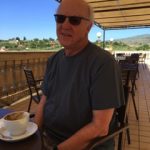 B.A., Yeshiva University, 1965; Ph.D. City University of New York, 1976. Currently Professor of Philosophy at UC Riverside. I have held positions at the University of Notre Dame and the University of Minnesota, Morris and visiting positions at Stanford University and the University of Iowa. My main research areas are philosophy of religion and philosophy 0f language. I am editor of Midwest Studies in Philosophy since 1974. My latest book is The Significance of Religious Experience ((Oxford UP, 2012). I published two volumes in the philosophy of language, The Magic Prism (Oxford UP, 2004) and Has Semantics Rested On a Mistake? (Stanford UP 1991).
B.A., Yeshiva University, 1965; Ph.D. City University of New York, 1976. Currently Professor of Philosophy at UC Riverside. I have held positions at the University of Notre Dame and the University of Minnesota, Morris and visiting positions at Stanford University and the University of Iowa. My main research areas are philosophy of religion and philosophy 0f language. I am editor of Midwest Studies in Philosophy since 1974. My latest book is The Significance of Religious Experience ((Oxford UP, 2012). I published two volumes in the philosophy of language, The Magic Prism (Oxford UP, 2004) and Has Semantics Rested On a Mistake? (Stanford UP 1991).
Research: An open, honest exploration of our religious traditions would reveal both light and dark. Surely there is great emphasis on love for one’s brothers/sisters, as well as for the other, the stranger, the outcast, for the poor, the needy, the orphan, and the widowed. We often emphasize such caring when we talk about our own traditions. What others emphasize about traditions not their own is sometimes much less attractive but equally correct, that there has been support in our traditions for slavery, religious war, vengeance, and varieties of discrimination. And even where there is scant scriptural support for some of these things, the traditions have found a way to sanction all manner of inhumanity. My aim in the work I will do as part of the spring 2018 seminar is to explore reactions within the traditions to the dark side of those traditions. How does an honest and committed member come to terms with aspects of her tradition of which she is not proud? I will begin with my own tradition, Judaism, to explore how people have confronted evil from within. My secondary aim is to begin to look at the other Abrahamic faiths, Christianity and Islam, with an eye to the same question.
Stephanie Wilms, University Writing Program Lecturer
 Stephanie Ann-Wilms Simpson received her PhD in United States History with an emphasis in “Race and Culture” from the University of California, Riverside. She teaches composition courses for the University Writing Program at UCR, and is currently revising and expanding her dissertation project on Moorish Science into a full-length monograph: Teach Them “Love Instead of Hate”: A History of the Early Development of Islam in the United States, The Moorish Science Temple of America. She is also working on a project on racial literacy and beginning her second historical study of Reggae music and Rastafarian religious culture in California.
Stephanie Ann-Wilms Simpson received her PhD in United States History with an emphasis in “Race and Culture” from the University of California, Riverside. She teaches composition courses for the University Writing Program at UCR, and is currently revising and expanding her dissertation project on Moorish Science into a full-length monograph: Teach Them “Love Instead of Hate”: A History of the Early Development of Islam in the United States, The Moorish Science Temple of America. She is also working on a project on racial literacy and beginning her second historical study of Reggae music and Rastafarian religious culture in California.
Research: Bridge Mothers, Brides, and Daughters: A Comparative Study of Women in the Moorish
Science Temple of America and the Nation of Islam | The first annual convention of Moorish Science, held in September 1928 in Chicago, IL, opened with a testimonial from a Moorish sister from Ohio’s Temple No. 5. She stood up before the Moorish Science Temple of America (MSTA) and proclaimed, “I am glad I am not a Negro.” Her speech touched on the transformative qualities that were attractive to converts of Moorish Science. Women in MSTA were tasked with providing the necessary “education for conversion” and were thus a primary component of the movement. In the early years of MSTA especially, women maintained a high profile and their contributions to the growth of the movement was significant, with women leading temples, acting as managing editors of the group’s newspaper, and factoring prominently in the creation and maintenance of auxiliary groups. Recent examinations of women in the Nation of Islam (NOI) also reveal the critical roles women played in creating, sustaining, and maintaining the movement. Participation of women in NOI compared to women in Moorish Science illustrates that women in both of these movements performed the work necessary for the organization’s success, despite our current male dominated narratives. The link between these two movements is significant, as the Nation of Islam was formed from the disintegrating factions of Moorish Science in cities such as Detroit and Chicago. By investigating the women and their work in both movements, we gain a better understanding of the motivating factors for conversion to Islam among African American women and their families.
The U.S. Supreme Court upheld the University of Texas’s affirmative action program in June 2016. Yet, arguably, efforts at diversity in higher education need now to go beyond attempts to provide greater access to institutions of higher education for under-represented groups to explore gender and racial campus culture of the institutions themselves. Such questions include issues of intra-student racial tensions (as those that arose recently at the University of Missouri); disparate undocumented student access (largely dependent upon state policies); gender equality, safety, and other Title IX issues (unsettling almost every campus in the United States); questions about symbols that may be racially charged (e.g. the names of Calhoun College at Yale and the Woodrow Wilson School at Princeton and the flying of the Confederate flag at the Citadel); and concerns about the possible conflict between ensuring free speech and providing so-called safe spaces (e.g. the controversy of the Silliman College e-mail at Yale). Among other questions, this seminar would ask what colleges and universities owe their students in terms of resources, safe spaces, curriculum, and the like; how exclusionary symbols might be best dealt with in a way that acknowledges contentious histories and what new policies might be necessary to deal with sexual harassment, violence, and ethnic tensions.
Events
| Title | Date | Location |
|---|---|---|
| Film & Discussion: American Promise | January 19, 2018 @6 PM | Culver Center of the Arts |
| Beyond Diversity: A conversation about race, inclusivity, and higher education | March 7, 2018 @5 PM | CHASS INTS 1113 |
Participants
Jennifer Nájera – Convener
Jennifer R. Nájera received her Ph.D. in Anthropology from the University of Texas at Austin and is currently Associate Professor of Ethnic Studies at the University of California Riverside. She is a cultural anthropologist whose work investigates issues of race, immigration, and education. Nájera is the author of The Borderlands of Race (University of Texas Press, 2015).
Research: Nájera is currently working on a book manuscript that examines how undocumented young people are becoming prominent and effective activists in the immigrant rights movement even in the face of anti-immigrant policies. It examines their political formation, beginning from the education that they receive at home and in their communities as well as in college and university settings. Her work interrogates how undocumented young people mobilize their political education on campus and in community settings through direct action as well as everyday forms of activism. Nájera’s analysis uses an expansive understanding of education to encompass that which occurs in the home and in the public sphere. This often unrecognized and undocumented education serves as the base upon which young activists are building their movement.
Carlos Cortes
Carlos Cortés, UCR Professor Emeritus of History, serves on the faculties of the Harvard Institutes for Higher Education, Summer Institute for Intercultural Communication, and Federal Executive Institute. His recent books include Fourth Quarter: Reflections of a Cranky Old Man, Multicultural America: A Multimedia Encyclopedia, and his memoir, Rose Hill: An Intermarriage before Its Time. He served as Scholar-in-Residence with Univision Communications and Creative/Cultural Advisor for Nickelodeon’s “Dora the Explorer” and “Go, Diego, Go!,” receiving the 2009 NAACP Image Award. Cortés has lectured and consulted throughout the United States, Latin America, Europe, Asia, and Australia, while also performing his one-person autobiographical play, A Conversation with Alana: One Boy’s Multicultural Rite of Passage.
Research: After nearly half a century of activity in various facets of diversity, I have begun work on a capstone book on the topic, with a working title of Diversity: A Personal Odyssey. One of the challenges facing diversity analysts and practitioners is the appalling absence of historical consciousness concerning the tortuous trajectory of diversity as an idea, as a curricular concept, as a media dilemma, and as a challenge in numerous sectors of society. As the title suggests, my book will examine the half-century development of the concept of diversity, including the ways in which that idea has affected U.S. society and institutions, including higher education. Moreover, I am approaching that topic from an autobiographical perspective, building upon my fifty-year involvement in diversity-related activity and scholarship. In the seminar, I will focus on the higher education aspects of the book. For that part of the book I will draw upon my experiences as a lecturer and consultant to more than 350 colleges and universities on five continents, as well as my experiences, since 1991, teaching diversity sessions for the Harvard Summer Institutes for Higher Education. My Harvard teaching has given me the opportunity of interacting with thousands of administrators from all types of institutions. I plan to make use of Mellon seminar discussions to inform my analysis of diversity within higher education by drawing upon seminar feedback to my ideas and interpretations.
Peter Graham, Professor of Philosophy
Nhung Ha
Nhung Ha is a fourth year undergraduate in the Ethnic Studies department. With her minor in education, she hopes to become an elementary school teacher through an ethnic studies and justice-oriented approach. Ha has participated in research with Dr. Rita Kohli, that explores the critical consciousness of veteran women Educators of Color. Through this study, Nhung Ha was able to learn research skills, as well as the significance in advocating for equity and social justice through education. Furthermore, Ha and Dr. Kohli have co-authored a manuscript for an education journal, which has been submitted to the American Educational Research Association’s (AERA) conference in 2018. Nhung Ha is passionate and enthusiastic about higher education and hopes to advocate for diversity and social justice.
Rita Kohli
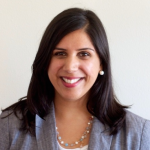 Rita Kohli is an Assistant Professor in the Education, Society and Culture Department in the Graduate School of Education at UCR, and is co-director of the Institute for Teachers of Color Committed to Racial Justice. She has spent over 15 years in urban public schools across the country as a teacher, teacher educator and educational researcher striving for educational justice, and is co-editor of the book, Confronting Racism in Teacher Education: Counternarratives of Critical Practice. She received UCR’s Change Maker Award for Social Innovation in 2016, and Scholar Activist Award from the American Educational Research Association in 2017.
Rita Kohli is an Assistant Professor in the Education, Society and Culture Department in the Graduate School of Education at UCR, and is co-director of the Institute for Teachers of Color Committed to Racial Justice. She has spent over 15 years in urban public schools across the country as a teacher, teacher educator and educational researcher striving for educational justice, and is co-editor of the book, Confronting Racism in Teacher Education: Counternarratives of Critical Practice. She received UCR’s Change Maker Award for Social Innovation in 2016, and Scholar Activist Award from the American Educational Research Association in 2017.
Research: Shaped by historical, social and political influences, as part of higher education, U.S. teacher education programs have been revealed as sites that privilege whiteness. With a traditionally white demographic of teacher candidates and teacher education faculty, a curriculum that normalizes White histories and perspectives, and pedagogy that tends to overlook the strengths of non-dominant teachers, teacher candidates of Color often feel silenced, racialized, and invisibilized in their education. Thus, as universities diversify teacher education, they must move beyond considerations of access and understand the ethics of recruiting students of Color into programs that are racially marginalizing spaces. This research study bridges theories of whiteness, campus racial climate, and teacher education to understand the ways in which a teacher education program that serves predominantly students of Color can continue to uphold whiteness. In Southern California, many teacher education programs draw a majority student of Color population into its teacher education program. Many of the students come from the communities and schools they are being trained to teach within. Even so, from their instructors to their peers, students of Color reported feeling undervalued, dismissed, and othered across factors including race, religion, language, and documentation status. With student of Color pushout as a documented outcome of hostile racial climate within predominantly White institutions, this study aims to understand the impact of racial climate within a predominantly student of Color serving institution, as well as the supports students of Color need to feel visible, safe and centered in their own learning.
Lawrence Lan
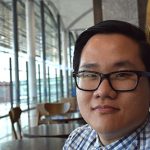 Lawrence Lan is a PhD student in the Ethnic Studies Department at the University of California, Riverside (UCR). His research interests include racial capitalism, human geography, and left/progressive labor and community organizing in southern California.
Lawrence Lan is a PhD student in the Ethnic Studies Department at the University of California, Riverside (UCR). His research interests include racial capitalism, human geography, and left/progressive labor and community organizing in southern California.
Research: This research project focuses on an important moment at the University of California, Riverside (UCR)—campus organizing against Proposition 209 during the 1990s—to understand how contemporary conditions on UCR’s campus have come to be produced through the dialectical relationship between campus activism and the public university. Importantly, too, this project will document how activists have dreamed new visions, repurposed and adapted previous tactics and strategies, and built new spaces in response to varying assaults on and attempts by the university to incorporate minoritized groups. Drawing methodologically on qualitative interviews with activists involved in the organizing around Proposition 209, as well as archival research housed in the University Archives in Tomás Rivera Library, this research project will situate campus activism around Proposition 209 in the context of the university’s history, and the history of the UC system more broadly, as it considers new (or sometimes, the same) policies and approaches that student activists continue to fight for. Considering the university’s structural position as a public land-grant university and a settler colonial institution on indigenous Cahuilla land, UCR will offer a complicated, generative site of analysis in terms of its geographies as well as its political, economic, and social histories. This project proposes that the university’s ongoing commitments to offer resources, safe spaces, and curricula in the service of students of color, and its attendant commitments to confronting sexual harassment, violence, and racial/ethnic tensions, must first reckon seriously with its gendered and racial pasts—and the activisms that accompanied them.
Danielle C. Mireles
Danielle C. Mireles is a doctoral student in the Education, Society, and Culture program at the University of California, Riverside. Her primary research interests are dis/ability critical race theory, critical race theory, Deaf studies, and higher education. Her dissertation project examines how dis/abled students of color navigate the accommodation process in higher education.
Research: Students with dis/abilities represent approximately 11% of the undergraduate student population and 5% of the graduate student population (National Center for Education Statistics, 2016). Research that examines the accommodation process (i.e. requesting note-takers, extended test time, etc.) and how dis/abled students navigate it has found that faculty attitudes and beliefs and campus climate are major barriers to success (Barnard-Brak, Lechtenberger, & Lan, 2010; Raue & Lewis, 2011; Sniatecki, Perry, & Snell, 2015). The majority of research examines dis/ability type as a possible indicator of differential treatment (Hartman-Hall & Hagaa, 2002; Frymier & Wazner, 2002; Sniatecki et al., 2015; West, Novak, & Mueller, 2016), but fails to critically examine how race/ethnicity, gender, socioeconomic status, and other intersections of identity impact this process. In my research, I aim to understand and examine how dis/abled students of color navigate the accommodation process from an intersectional perspective.
Angela Ojeda
I am a transfer student finishing my undergraduate degree in Anthropology this year. I was born and raised in the San Fernando Valley which has shaped my standpoint on pressing issues affecting the Mexican community. My interests revolve around understanding cultural diversity in a global world, socioeconomic development, and the application of GIS in building smart communities. I have done research on serious mental health illness (SMI) in Mexican-born communities and how to integrate patients’ needs into local policy. In addition, I have researched the 18th century Norse settlement of Greenland and instructive case theories on the dying out of the civilization, as I believe it is important to become familiar with our global history to develop ethical and sustainable economic solutions. Currently, I am applying to the California Senate Fellows Program where I plan to serve the constituents in building a stronger more informed California. Future goals include obtaining an MA in International Affairs/MPP from Stanford. In my free time, I enjoy hiking, reading ethnographies and cookbooks, and trying out different foods. From this seminar, I hope to gain insights on how to give marginalized communities a better chance of succeeding and I look forward to meeting like-minded individuals and making a difference.
Joshua Oliver
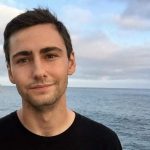 I am a fourth year English and Creative Writing major, currently considering and prepping for the possibility of jumping into a PHD program shortly or immediately after completion of my undergrad. In my brief time studying literature at UCR, I feel like my perspective of the world and myself has been shaped and changed immensely. For me, a commitment to work in literature is a commitment to constant thought, consideration, and growth as an individual. When I’m not working on papers and stories for class, I spend my time writing music and touring in a musical group with my friends.
I am a fourth year English and Creative Writing major, currently considering and prepping for the possibility of jumping into a PHD program shortly or immediately after completion of my undergrad. In my brief time studying literature at UCR, I feel like my perspective of the world and myself has been shaped and changed immensely. For me, a commitment to work in literature is a commitment to constant thought, consideration, and growth as an individual. When I’m not working on papers and stories for class, I spend my time writing music and touring in a musical group with my friends.
Research: This quarter I will be working through Pym; both Edgar Allan Poe’s novel and Mat Johnson’s contemporary response to it. While Poe’s Pym has some disturbing and racist undertones, Johnson’s 2011 novel makes productive commentary on how the constructs of whiteness and blackness exist in our world, our literature, and the function of University. Thinking about “diversifying higher education,” I will be working with sources like Toni Morrison’s Playing in the Dark: Whiteness And The Literary Imagination, thinking about where the university system has progressed and failed in dismantling a history of whiteness—a history where University historically benefits the white man, often disregarding, ignoring (or frequently even “using” to forge a sense of progress and diversity) people of color and women. Working also with Cathy Cohen’s Punks, Bulldaggers, and Welfare Queens: The Radical Potential of Queer Politics, I will utilize my reading of the modern Pym to argue for intersectionality as a crucial tool in dismantling roots of patriarchy and whiteness in higher education. This will call for further research into university politics, using Fred Moten and Stefano Harney’s The University and the Undercommons as a starting point. Also, with diversity committees being heavily pushed back against in the novel, this project will call for further research into the success, failures, and problems with these committees in legitimately creating diverse University environments. This being my second time doing a Mellon Seminar, I would like to thank professor Sohn, Graham, Katharine Henshaw, and everyone else involved with Mellon and The Center For Ideas And Society. Giving me the opportunity to spend time with texts of my choosing, do self-driven research, and prepare papers that will serve as writing samples for grad school, the seminar has provided me with invaluable experience as an undergrad.
Addison Palacios
 Addison is a Ph.D. candidate in the English Department at UC Riverside, where he also earned his master’s degree. His scholarly work specializes in twentieth-century American literature and modernism while his teaching is heavily invested in new approaches to critical pedagogy. His current project focuses on the role of intellectuals in American culture while arguing that the university has played a more critical role in that development than is regularly acknowledged, which holds large stakes for minority intellectuals.
Addison is a Ph.D. candidate in the English Department at UC Riverside, where he also earned his master’s degree. His scholarly work specializes in twentieth-century American literature and modernism while his teaching is heavily invested in new approaches to critical pedagogy. His current project focuses on the role of intellectuals in American culture while arguing that the university has played a more critical role in that development than is regularly acknowledged, which holds large stakes for minority intellectuals.
Research: This project combines literary analysis with sociohistorical methodologies to understand the formal university’s role in shaping the modern intellectual. I argue that, since the turn of the century, intellectualism has gradually become synonymous with higher education, which holds especially large stakes for people of color who have historically been denied institutional access. While critics have done important work to reveal this development, they fail to acknowledge the stakes of this merger and lament the decline of a romanticized notion of the intellectual. Instead, this project shows how the minority intellectual’s very different relationship to higher education calls for a renewed understanding of American intellectual history as well as alternative measures for academic diversity and inclusion. Through analyzing texts like Ralph Ellison’s Invisible Man, Tomás Rivera’s …y no se lo tragó la tierra, and Mary McCarthy’s The Company She Keeps, my project voices more nuanced accounts of the structural and ideological ways academic practice reshapes the intellectual lives of minorities, in ways that quantifiable measurements often elide. I read these texts in light of the historical developments of the modern university, while pointing more specifically to institutions like the UC system as well as Historically Black Colleges and Universities, to consider how the complex intersections between higher learning, the state, and the racialized subject come together at the campus level. Additionally, this project considers counter-sites of knowledge within and beyond the university, which are explored through the archival correspondences of prominent, minority intellectuals and their academic colleagues.
Amanda Scott-Williams, Graduate School of Education
Qingfang Wang
Qingfang Wang is an Associate Professor of Public Policy at UC Riverside. With a doctoral degree in Geography, she is particularly interested in place, as both work site and residential location, interacts with race, ethnicity, immigration status, and gender in shaping individual social-economic wellbeing. Funded by NSF, HUD, and other agencies, she has done work on immigrant labor market segmentation, ethnic entrepreneurship and community development. Her work can be found in journals such as The Annals of Association of American Geographers, Journal of Small Business Economics, Economic Development Quarterly, Journal of Urban Affairs, Environment and Planning A, and Urban Studies.
Research: Job Satisfaction and Professional Development of Faculty in Higher Education: According to the most recent data, underrepresented minority groups held only 10 percent of tenured positions among the higher education faculty in the U.S. (Flaherty 2016). Retention of minority faculty is not only critical for faculty themselves, but also significantly impacts the cultivation of safe, open, just, and multicultural learning communities for students. Using both national datasets and in-depth interviews across universities in the nation, this study examines job satisfaction of faculty members across race, ethnicity, gender, and foreign-born status in the U.S. higher education, their experiences of professional development and interaction with students, and the challenges they are facing. This study will contribute to the seminar in different ways. First, it will help understand the diversity issues within higher education on the faculty side and provide policy and practice implications in minority faculty hiring and retention. Second, a large number of studies have shown that mentoring for minority students who persevere in higher education is severely lacking. Promoting diversity and retaining women and minority faculty will ultimately impact the success of students and the overall institutional environments within higher education. Finally, with an interdisciplinary approach using both quantitative and qualitative research methods, I hope to work with other faculty members in the seminar to provide mentorship for students with different levels and backgrounds.
Megan Weimer
 I am a 4th year undergraduate student pursuing a Bachelor of Arts degree in Psychology with a minor in Education. I am currently working on completing my University Honors Capstone project, under the direction of my faculty mentor for this seminar, Dr. Jennifer Najera. Because this is my last year at UCR as an undergraduate, I look forward to the various opportunities this seminar will afford me in learning about the intersections of scholarly research and intercultural studies. This is especially true because the project that I am working on is centered around the experiences of individuals of mixed race and/or ethnic heritage, a topic that is near and dear to my heart. After graduating from UCR, I hope to attend graduate school for a Master’s degree in Education, where I can further pursue my goal in becoming an educator for future generations. I look forward to working alongside my faculty mentor, Dr. Jennifer Najera, and I am extremely excited to see what the remainder of my last year at UCR has in store as I pursue opportunities for research and scholarly work through participation in this seminar and beyond!
I am a 4th year undergraduate student pursuing a Bachelor of Arts degree in Psychology with a minor in Education. I am currently working on completing my University Honors Capstone project, under the direction of my faculty mentor for this seminar, Dr. Jennifer Najera. Because this is my last year at UCR as an undergraduate, I look forward to the various opportunities this seminar will afford me in learning about the intersections of scholarly research and intercultural studies. This is especially true because the project that I am working on is centered around the experiences of individuals of mixed race and/or ethnic heritage, a topic that is near and dear to my heart. After graduating from UCR, I hope to attend graduate school for a Master’s degree in Education, where I can further pursue my goal in becoming an educator for future generations. I look forward to working alongside my faculty mentor, Dr. Jennifer Najera, and I am extremely excited to see what the remainder of my last year at UCR has in store as I pursue opportunities for research and scholarly work through participation in this seminar and beyond!
Research: The research question I hope to answer is how and why does mixed-race identity influence early life experiences leading into early adulthood at the college/university level. For the purposes of this study, mixed race persons are defined as someone with biological parents of 2 or more different racial or ethnic backgrounds. I will attempt to answer this research question by conducting one-on-one interviews with participants regarding their early childhood experiences and how they may have affected them upon reaching adulthood. These interviews will then be analyzed by the faculty supervisor and the researcher in order to determine common themes which may or may not be present in the interviews. Interview data will be compiled into a written paper excluding participant names and personal information that may reveal their identities.
During this seminar, participants will examine contrasting responses to economic inequality, which has been on the rise in most rich Democracies for nearly three decades. We’ve witnessed two very different kinds of responses. On one hand, movements including Occupy Wall Street, the Bernie Sanders campaign and radical resistance to austerity and the promotion of multiculturalism in Europe, advocate progressive responses that seek to reduce economic inequality. On the other, right-leaning populist and anti-immigrant parties/movements in Europe and the United States, including Brexit (UK), the National front (France) and the Donald Trump campaign (US), have responded with attempts to scapegoat and exclude already marginalized groups from a shrinking economic pie. Thus, we seek scholars who examine the paradoxical relationship between rising inequality and bigotry, on the one hand, and progressive politics, on the other. The seminar is methodologically and epistemologically agnostic, but we are particularly interested in historical and empirical approaches to economic inequality and its backlashes, and in projects that can demonstrate connections between them.
Events
| Title | Date | Location |
|---|---|---|
| Politics in the Era of Trump | Watch Lecture | October 12, 2017 | CHASS INTS 1113 |
| Film & Discussion: Inequality for All | October 13, 2017 | Culver Center of the Arts |
| Race, Class, and Trump | November 16, 2017 | CHASS INTS 1113 |
Participants
Matthew Mahutga – Convener
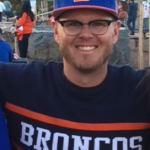
Matthew C Mahutga is Associate Professor of Sociology at the University of California, Riverside. His research examines the global determinants of economic organization and their consequences for a range of political and socio-economic outcomes. His work appears in interdisciplinary outlets including Europe-Asia Studies, Global Networks, Review of International Political Economy, Social Forces, Social Networks, Social Problems, Social Science Research, Urban Studies, and elsewhere, and has been supported by the National Science Foundation. Michaela Curran is a collaborator on this project.
Paper Abstract: Income Polarization in Rich Democracies: Household Composition, Labor Markets and Structural Change (Matthew C Mahutga, Michaela Curran, Sociology, University of California, Riverside) Recent inequality research focuses on the concept of income polarization. In this article, we first examine empirically the phenomenon of income polarization in the OECD. We show that both lower-tail and upper-tail polarization are on the rise in the OECD, but that upper-tail polarization is more salient. Second, we develop a conceptual framework for analyzing income polarization in terms of income penalties and premiums at the household level that emerge from the interaction of household composition, labor markets, structural change (globalization, skill-biased technological change and financialization) and institutional context (unions, wage-coordination and welfare states). Third, we develop a novel empirical strategy with which to subject this framework to empirical scrutiny. We show there are sizable disparities between dual-earning and single-mother households, but also a wide degree of variation within each household type owing to the interaction of assortative marriage with the returns to skill and occupation in the labor market. Structural change exacerbates skill and occupational penalties and premiums, while egalitarian institutions ameliorate these premiums. Our analysis yields three broad conclusions. First, while the interaction of household composition with labor markets is a powerful force for distributional change, it is insufficient to explain contemporary levels of income polarization. Second, both structural change and institutional context moderate income penalties and premiums in the labor market. Egalitarian institutions play a larger role in moderating income penalties in the labor market, but structural change is more salient overall because of its large effect on high-end income premiums. Third, the sociology of inequality should work to bridge theoretical and empirical divides in the literature. While income inequality is largely a household level phenomenon, it is nevertheless a joint function of processes operating in different analytical dimensions across different levels of analysis.
Aisa Ballard-Dosty
 I was born in Richmond, California. I am a fourth-year undergraduate student with a major in sociology. After I complete my Bachelors Degree this year I hope to begin working on a social work Ph.D. program. I will be working alongside Dr. Mahutga on his project that thoroughly analyzes and evaluates theories of household income and polarization at both macro and micro levels.
I was born in Richmond, California. I am a fourth-year undergraduate student with a major in sociology. After I complete my Bachelors Degree this year I hope to begin working on a social work Ph.D. program. I will be working alongside Dr. Mahutga on his project that thoroughly analyzes and evaluates theories of household income and polarization at both macro and micro levels.
Paper Abstract: Ethnographies of Economic Inequality: Insider and Outsider Perspectives (Aisa Ballard-Dosty, Sociology, University of California, Riverside) There are different perspectives of accuracy when it comes to qualitative research methods. In my essay, I analyze how qualitative research methods can have different results due to the position of the researcher. In the Ethnography Sidewalk the by, Mitchell Duniere the author is considered an outsider in the community in which he is studying. Duniere being a white Jewish male studying the lives of poor black men had more difficult time collecting data on what’s going on in the streets of New York. In the ethnography, The Stickup Kids by Randol, Contreras the author is considered an insider studying the lives of his friends and people living in his community. Both authors are studying results of economic disparity and inequality however, being an outsider versus being an insider in the community, the authors are studying resulted in very great ethnographic pieces but differed in the understanding and application of their findings. The differences in the way the two authors are connected to the community showed throughout their work. My essay examines how the position of the researcher can alter the understanding of their research.
David Brady
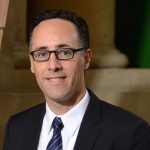 David Brady is Professor of Public Policy and Director of the Blum Initiative on Global and Regional Poverty at UCR. He received his Ph.D. in Sociology and Public Affairs from Indiana University in 2001, and was Director of the Inequality and Social Policy department at the WZB Berlin Social Science Center from 2012-2015. He is the author of Rich Democracies, Poor People: How Politics Explain Poverty and co-editor of The Oxford Handbook of the Social Science of Poverty (both Oxford University Press). Presently, he is studying how inequalities in long-term economic resources influence health and racial inequality; the political consequences of immigration and racial/ethnic heterogeneity; comparative social policy; and poverty/inequality.
David Brady is Professor of Public Policy and Director of the Blum Initiative on Global and Regional Poverty at UCR. He received his Ph.D. in Sociology and Public Affairs from Indiana University in 2001, and was Director of the Inequality and Social Policy department at the WZB Berlin Social Science Center from 2012-2015. He is the author of Rich Democracies, Poor People: How Politics Explain Poverty and co-editor of The Oxford Handbook of the Social Science of Poverty (both Oxford University Press). Presently, he is studying how inequalities in long-term economic resources influence health and racial inequality; the political consequences of immigration and racial/ethnic heterogeneity; comparative social policy; and poverty/inequality.
Paper Abstract: The Evolution of Social Welfare Transfers Across U.S. States, and the Consequences for Relative Poverty (David Brady, Public Policy, University of California, Riverside; Zachary Parolin, University of Antwerp) We examine how social welfare transfers evolved across U.S. states from 1993 to 2014. We estimate the levels of three dimensions of welfare transfers: universalism, targeting and transfer share. Using higher quality and improved measures of welfare transfers and household income, we provide more precise and more accurate state-year measures of welfare transfers. Our estimates describe an increase in transfer share and universalism and a decline in targeting in recent decades. We then assess how each state-year level dimension influences individual-level relative poverty, measured at various cutpoints below the median of the income distribution (both relative to a given year and anchored to the 1993 median). The models adjust for a variety of individual-level and state-year level variables and state and year fixed effects. The analyses show that declining targeting worsened relative poverty at 30 and 40% of the median, and anchored poverty at 30-50% of the median. By contrast, increasing universalism reduced relative poverty at 10-40% and anchored poverty 10-50% of the median. Further, increasing transfer share reduced relative poverty 50-100%, and increased anchored poverty 20-50% of the median. Overall, the bottom half of the income distribution would only be modestly different in 2014 if welfare dimensions were at 1993 levels.
Steven Brint
 Steven Brint is Distinguished Professor of Sociology and Public Policy at the University of California, Riverside, and the director of the Colleges & Universities 2000 study. He is an organizational sociologist whose current research focuses on topics in the sociology of higher education, the sociology of professions, and middle-class politics. He is the author of three books: The Diverted Dream (with Jerome Karabel) (Oxford University Press, 1989), In an Age of Experts (Princeton University Press, 1994), Schools and Societies (Pine Forge/Sage, 1998, second ed. Stanford University Press 2006). He is the editor of The Future of the City of Intellect (Stanford University Press, 2002). He is the co-editor (with Jean Reith Schroedel) of the two volume series, Evangelicals and Democracy in America (Russell Sage Foundation Press 2009). His articles have appeared in the American Journal of Sociology, Sociological Theory, Minerva, Work and Occupations, Sociology of Education, The Journal for the Scientific Study of Religion, The Journal of Higher Education, and many other journals.
Steven Brint is Distinguished Professor of Sociology and Public Policy at the University of California, Riverside, and the director of the Colleges & Universities 2000 study. He is an organizational sociologist whose current research focuses on topics in the sociology of higher education, the sociology of professions, and middle-class politics. He is the author of three books: The Diverted Dream (with Jerome Karabel) (Oxford University Press, 1989), In an Age of Experts (Princeton University Press, 1994), Schools and Societies (Pine Forge/Sage, 1998, second ed. Stanford University Press 2006). He is the editor of The Future of the City of Intellect (Stanford University Press, 2002). He is the co-editor (with Jean Reith Schroedel) of the two volume series, Evangelicals and Democracy in America (Russell Sage Foundation Press 2009). His articles have appeared in the American Journal of Sociology, Sociological Theory, Minerva, Work and Occupations, Sociology of Education, The Journal for the Scientific Study of Religion, The Journal of Higher Education, and many other journals.
Paper Abstract: The Liberal Politics of Professionals? Forty Years of Data from the General Social Survey (Michaela Curran, Joel Winegar, Steven Brint, Sociology, University of California, Riverside) Social scientists are rediscovering the issue of class inversion in American politics as large proportions of less educated white workers have shifted to adopt Republican Party identifications and conservative policy preferences and highly educated professionals have appeared to shift toward Democratic Party identifications and liberal policy preferences. This renewed interest in class inversion has encouraged social scientists to reconsider theoretical perspectives intended to explain differences between business owners/managers and professionals, including Gouldner’s “new-class” theory, Bourdieu’s “class fractions” theory, and Brint’s “cumulative trends” argument. This paper examines the thesis of the liberal politics of professionals using 40 years of data from the General Social Survey. Net of covariates, we find that highly educated professionals are not left-of-center on Democratic party identification or redistributive issues, nor are they more liberal on race-related government spending. They are more liberal on “middle-class government spending” (environment, education, and health) and on issues related to social inclusion, moral non-restrictiveness, and national defense/policing. Much of the difference in the political views of business owners/managers and professionals can be explained by compositional differences between the two strata. The professional stratum is composed disproportionately of liberal-leaning groups: minorities, women, city residents, less religious people, and younger people. In general, inequality in the United States has led, among whites, to greater opposition to policies favored by minorities, rather than to greater support for progressive policies.
Kai Cheang
 Kai is a Ph.D. candidate in the English Department at UC Riverside specializing in Asian diasporic literature and genre studies. He is particularly interested in narratives by Asian Americans about social movements. Kai’s dissertation project takes a historiographical approach to the assembly of an archive of melancholia comprised of Asian American novels, documentaries, and musical performances that recall the largely forgotten beginnings of Asian Americans as a singular political group during the long 1960s. The project uses this archive to build the case that Asian American artists’ transgression of genre expectations reveals the productive logic and radical potential in remembering the past, and draws attention to the intersections and limits of countercultural and coalitional politics in the formation of Asian America.
Kai is a Ph.D. candidate in the English Department at UC Riverside specializing in Asian diasporic literature and genre studies. He is particularly interested in narratives by Asian Americans about social movements. Kai’s dissertation project takes a historiographical approach to the assembly of an archive of melancholia comprised of Asian American novels, documentaries, and musical performances that recall the largely forgotten beginnings of Asian Americans as a singular political group during the long 1960s. The project uses this archive to build the case that Asian American artists’ transgression of genre expectations reveals the productive logic and radical potential in remembering the past, and draws attention to the intersections and limits of countercultural and coalitional politics in the formation of Asian America.
Paper Abstract: Scenes of Displacement: Sensorial Encapsulations and Ethical Interpellations in Asian American Documentary Fictions of the International Hotel (Kai Hang Cheang, English, University of California, Riverside) My essay delineates Asian American literature’s responses to and representations of economic inequality by analyzing two documentary novels that depict the demise of the International Hotel, one of the last affordable housing options for migrant workers in mid-twentieth century San Francisco. The essay uses the work of the subaltern theorists Gayatri Chakravorty Spivak and Trinh Minh-ha to position Sam Tagatac’s “The New Anak” (1974) and Karen Tei Yamashita’s I-Hotel (2010)—two experimental narratives that integrate sets of “documentary techniques” into story telling (Trinh 1990, 76)—as documentary fictions that challenge capitalism’s abstraction of laborers of color. In these works, Tagatac and Yamashita encapsulate the marginalization of the tenants of the International Hotel by zeroing in on the dermic, olfactory, and sonic material that defines their lives, filling their nostrils, and drifting across their environs. These granular depictions appeal to readers’ senses with a visceral immediacy that simultaneously reanimates the history of the International Hotel and its tenants, and incorporates it into San Francisco’s present by sublimating the materials of the displaced as moving pieces that are still wafting through the Bay, residing in the quotidian life of the city. If Spivak is correct that responsibility is “a mediatory stage” between the self and another (1994, 22), then the multi-sensory appeals in I Hotel and “The New Anak” enliven the history of the movement to save the International Hotel while staging it as part of the ongoing fight for housing justice on behalf of displaced tenants, exhorting readers to intervene in the housing crisis that continues to marginalize working-class laborers across coastal California.
Michaela Curran
 Michaela Curran is a Ph.D. candidate in the Department of Sociology at the University of California, Riverside. Her primary research interests include income inequality, economic development, and population health. Her dissertation is a cross-national, quantitative study of how income inequality impacts health across different levels of economic development, at the country-level and the individual-level. She earned her B.A. in Sociology from the University of Central Arkansas and her M.A. in Sociology from UC Riverside.
Michaela Curran is a Ph.D. candidate in the Department of Sociology at the University of California, Riverside. Her primary research interests include income inequality, economic development, and population health. Her dissertation is a cross-national, quantitative study of how income inequality impacts health across different levels of economic development, at the country-level and the individual-level. She earned her B.A. in Sociology from the University of Central Arkansas and her M.A. in Sociology from UC Riverside.
Paper Abstract: Contextual or Compositional Effects? Income Inequality, Socioeconomic Status, and Self-Rated Health in 76 Countries (Michaela Curran, Sociology, University of California, Riverside) Evidence suggests that macro-level inequality’s impact on an individual’s health might represent a contextual (i.e., ecological) rather than a compositional (i.e., related to individual resources) effect. To test this relationship, previous works subject the income inequality-health hypothesis to multi-level models that attempt to untangle the relationships between income inequality, individual income, and poverty. However, results provide mixed support for an association between income inequality and individual-level health. This paper extends on the previous literature by untangling the effects of macro-level income inequality and individual-level resources on self-rated health using a broader sample of countries than previous works. It brings to bear a cross-national, comparative perspective on the macro-micro link between income inequality and health. It also considers the effects of an additional individual-level resource not often explored in previous works, subjective social status .Preliminary findings suggest that subjective social status might capture distinct mechanisms through which SES impacts health. Country-level income inequality appears to amplify the link between subjective social status for the middle-class, in particular.
Josh Hueth
 I am a transfer student majoring in English and a second year Mellon-Mays Undergraduate Research Fellow. My research interests include horror, Am. Lit., and Marxism. My non-research interests include Rick and Morty, carnivorous plants, and Pokémon. I don’t have much to say about myself, so thank you to Professors Vint, Sohn, and Doyle for inspiring my work and continuing to push me intellectually. Thank you also to the people at the CIS for this wonderful opportunity!
I am a transfer student majoring in English and a second year Mellon-Mays Undergraduate Research Fellow. My research interests include horror, Am. Lit., and Marxism. My non-research interests include Rick and Morty, carnivorous plants, and Pokémon. I don’t have much to say about myself, so thank you to Professors Vint, Sohn, and Doyle for inspiring my work and continuing to push me intellectually. Thank you also to the people at the CIS for this wonderful opportunity!
Paper Abstract: Economic Inequality in Rebecca Harding Davis’s Life in the Iron Mills (Josh Hueth, English, University of California, Riverside) This essay aims to address what might be thought of as the central ontological question posed in Rebecca Harding Davis’s novella Life in the Iron Mills. The text is framed around questions of unequal access to social capital and ontological fulfillment. Who gets to climb the social ladder? Who can be a person? I argue, the mill represents a space in which even the possibility of person-hood is refused to the laborers. Furthermore, Davis strangely adopts formal elements of the horror genre in describing the phenomenological interactions between characters and the mill. In my reading, the text reproduces the lived horror of life under industrial capital for the reader.
Joshua Oliver
 I am a fourth year English and Creative Writing major, currently considering and prepping for the possibility of jumping into a PHD program shortly or immediately after completion of my undergrad. In my brief time studying literature at UCR, I feel like my perspective of the world and myself has been shaped and changed immensely. For me, a commitment to work in literature is a commitment to constant thought, consideration, and growth as an individual. When I’m not working on papers and stories for class, I spend my time writing music and touring in a musical group with my friends.
I am a fourth year English and Creative Writing major, currently considering and prepping for the possibility of jumping into a PHD program shortly or immediately after completion of my undergrad. In my brief time studying literature at UCR, I feel like my perspective of the world and myself has been shaped and changed immensely. For me, a commitment to work in literature is a commitment to constant thought, consideration, and growth as an individual. When I’m not working on papers and stories for class, I spend my time writing music and touring in a musical group with my friends.
Paper Abstract: Exploring Inequality Through Don Delillo’s Academic World in White Noise (Joshua Olivier, English, University of California, Riverside) Illusions of upward mobility via higher education reign supreme in American culture and discourse. The ethos of higher education—the myth of the American Dream—argues that hard work in secondary school leads to career opportunities that allow all peoples to transcend toward higher economic and social positioning. This essay will explore how Don Delillo’s White Noise, exposes this notion as a comforting myth that renders the middle class as systematically subjugated—cultural sameness and economic stagnancy methodically maintained by a University System that profits from this sort of institutional pyramid scheme. Promises of equal opportunity and decreased economic and social disparity run rampant in academic discourse, but all the while the institution itself, historically, serves to promote disparity and patriarchal power dynamics between class and gender. Delillo’s academia, then, indicates an overt subjugation of the middle class, lower class, and women as the object of institutional remediation. With this, the novel can be read as a direct response to the Bayh-Dole Act of 1980. The commodity of knowledge and research creates a capitalist environment where the knowledge and research themselves matter less than the abilities for knowledge and to be commodified. Academic capital, then, becomes arbitrary insothat the institution itself has complete sayso as to what academic work is and is not “valuable.” Delillo, then, highlights how the ethos of higher education hides in the ruse of promoting economic and social equality while the system itself often perpetuates patriarchy and social disparity through the institution’s relationship with capitalism. Central to my argument will be Marx’s cash nexus along with Bill Reading’s The University In Ruins.
Yoon Jae Ro
 Yoon Jae Ro is a Ph.D. candidate in the Department of Economics at the University of California, Riverside. Her research agenda focuses on how individuals respond to policy impetus or ad-hoc state interventions (such legal drinking age or age of entry in school) and how these responses manifest in their socioeconomic outcomes. Her current research is an inquiry on how early exposure to alcohol consumption affects educational attainment among the youth. She believes in using an interdisciplinary approach to understand individual behavior in order to mitigate key development problems such as poverty, inequality, illiteracy, malnutrition, and crime.
Yoon Jae Ro is a Ph.D. candidate in the Department of Economics at the University of California, Riverside. Her research agenda focuses on how individuals respond to policy impetus or ad-hoc state interventions (such legal drinking age or age of entry in school) and how these responses manifest in their socioeconomic outcomes. Her current research is an inquiry on how early exposure to alcohol consumption affects educational attainment among the youth. She believes in using an interdisciplinary approach to understand individual behavior in order to mitigate key development problems such as poverty, inequality, illiteracy, malnutrition, and crime.
Paper Abstract: The Effect of Teachers’ Evaluation on Student Performance (Yoon Jae Ro, Economics, University of California, Riverside) There is little doubt that a quality teacher is the key factor of students’ achievement. Previous research has well established the effect of teachers on student performance. The quality of teacher is one of the most important factors found to promote students’ learning and even their long-term outcome such as earnings. Policy makers and educators have long been interested in finding correct ways to identify effective teachers and to improve the teaching quality. This study will analyze the impacts of the adoption of teacher value-added measures as the teacher evaluation on student performance. The existence of the value-added measure can change the behavior of teachers through different mechanisms. Further, the allocation of teachers across schools can change due to the evaluation contingent on the value-added score. Schools can use the student test score-based rating on selective hiring and retention of teachers. Also, the quality of teaching can be improved as teachers become aware of the policy. Thus, these changes of teacher’s behavior can actually raise student performance. However, those effects can differ depending on where the student stands regarding the initial test score. Investigating how information on true effectiveness of teachers affect students’ performance can be valuable to the policy makers. This study seeks to answer three questions. Firstly, does use of teacher value-added measures to inform personnel decision-making result in better outcomes for students? Secondly, do effects differ depending on the students’ initial standing in their academic achievement. Lastly, are students who are disadvantaged more likely to attend schools with ineffective teachers?
Carolyn Sloane
 Carolyn Sloane is an Assistant Professor of Economics at UC Riverside. Her research agenda is focused on understanding persistence in non-employment, uncovering the causal impacts of rising local wage inequality, and studying the allocation of talent in the public sector. Carolyn holds a PhD in Public Policy from the University of Chicago, a Masters of Business Administration in Economics and Finance from the University of Chicago and a Bachelor of Arts in Political Science and Spanish from Vanderbilt University. She previously worked as a legislative staffer in the United States Senate.
Carolyn Sloane is an Assistant Professor of Economics at UC Riverside. Her research agenda is focused on understanding persistence in non-employment, uncovering the causal impacts of rising local wage inequality, and studying the allocation of talent in the public sector. Carolyn holds a PhD in Public Policy from the University of Chicago, a Masters of Business Administration in Economics and Finance from the University of Chicago and a Bachelor of Arts in Political Science and Spanish from Vanderbilt University. She previously worked as a legislative staffer in the United States Senate.
Paper Abstract: Rising Wage Inequality and Urban Migration (Carolyn Sloane, Economics, University of California, Riverside; Lancelot Henry de Frahan, Economics, University of Chicago) Due to methodological hurdles, analysis of the real effects of increasing wage inequality is largely missing from the academic literature. This paper builds on the authors’ earlier work which proposed an identification strategy to separately analyze the causal impact of changing inequality and growth on many economic phenomena. In Rising Wage Inequality and Human Capital Investment, we find consistent evidence that increasing wage inequality causes declines in local community college and four-year institution enrollments. Economic theory offers a primary channel through which we may expect post-secondary enrollments and wage dispersion to be related: by altering incentives. As the premium offered for worker skill increases, the incentives to acquire skill intensify (Katz and Murphy 1992). In a local labor market, we may expect to see these incentive responses through: (1) the skilling up of the local population, or (2) by in-migration of skilled workers. With respect to the skilling up of the local population, our main results in Rising Wage Inequality and Human Capital Investment negate this prediction. This leads to the question: do we see the incentive response on the migration margin or is there simply no incentive response? In other words, in cities where wage inequality is increasing, do we see in-migration of skilled workers? Alternatively, do we see workers fleeing cities with rising inequality? As preliminary evidence, using an instrumented model we find predicted increases in inequality cause increases in population. A 1 standard deviation increase in the instrument for the 90-50 increases the population of those age 18 to 25 by 0.31 of 1 standard deviation. A 1 standard deviation increase in the distributional instrument for the 90-50 increases the native-state population of those age 18 to 25 by 0.23 of 1 standard deviation. In other words, local labor markets (MSAs) that experienced large predicted increases in both upper tail and overall inequality experienced young-adult population booms both in the form of overall migration and intrastate migration. These increases would have not been apparent through the analysis in the existing literature—the OLS results.
Stephen Sohn

Stephen Hong Sohn is Associate Professor of English at the University of California, Riverside. Sohn is the author of Racial Asymmetries: Asian American Fictional Worlds (NYU Press, 2014).
Paper Abstract: Asian American Fictions of Upward Mobility (Stephen Hong Sohn, English, University of California, Riverside) Asian American fiction provides us with a number of key examples concerning what has been termed the bamboo ceiling and dovetails with larger social contexts and scholarly studies that demonstrate the limits of Asian Americans’ upward mobility in the workforce. So, despite a shift away from the working class and labor-oriented politics that drove the Civil Rights movement and the development of ethnic studies, these fictions push us to consider how discourses of economic inequality have shifted in the age of the model minority. I focus on an analysis of a general “sample set” of these fictions (including but not limited to Helen Wan’s The Partner Track Mohsin Hamid’s The Reluctant Fundamentalist, Hari Kunzru’s Transmission, among others) to explore variations on these disparities that might be found in the “upper tail” of the economic strata.
Paul Teten
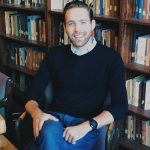
Paul Teten is a Ph.D. student in the Department of Political Science at the University of California, Riverside. He specializes in American politics and mass behavior with a focus on poverty, economic inequality and elite behavior. Paul earned his B.A. in Political Science from the University of Minnesota, Duluth. He has held positions with a number of governmental organizations such as the Minnesota Pollution Control Agency, the US Census Bureau, and a United States Senator. His current research focuses on the pressing issue of economic inequality and the link between the poor and their political representatives.
Paper Abstract: Elite Exposure to Economic Inequality (Paul Teten, Political Science, University of California, Riverside) With the immense expansion of economic inequality in democracies around the world, there has never been a more important time to study the effect inequality will have on politics. One of the most fundamental aspects that research on inequality must address is the impact it has on political representation. Research has shown that when the interests of the poor conflict with that of the wealthy, their preferences do not get served. This biased representation limits the ability of the government to properly address growing economic inequality. My research examines which factors increase the likelihood that a legislator will hold policy preferences that serve the interests of the poor. My theory posits that legislators who were raised in areas with higher economic inequality, will be more likely to advance redistributive policies once in office. Growing up in an area with greater wealth disparity will expose the legislator to the difficulties experienced by those in poverty compared to the privileges that accompany wealth. I expect that this exposure will play a consequential role in the legislator’s political socialization that makes them more sympathetic to the poor and they will therefore be more likely to support redistributive policies. This research will use original data from a survey of political elites regarding their exposure to inequality. The information gained from the survey will be used to observe the impact of exposure to economic inequality on the legislator’s activity in office, specifically the likelihood of introducing and cosponsoring redistributive legislation.
The FILM FOR THOUGHT summer series of documentaries, shorts and films explores intersecting project themes of inequality, diversity, religion and history.
| Film | Date | Time | Length |
|---|---|---|---|
| Requiem for the American Dream | July 14 & 15 | 7 PM | 73 minutes |
| A House Divided | July 15 | 3 PM | 60 minutes |
| Waiting for Superman | July 28 & 29 | 7 PM | 111 minutes |
| In the Game | July 29 | 3 PM | 77 minutes |
| He Named me Malala | August 11 & 12 | 7 PM | 87 minutes |
| White Helmets | August 12 | 3 PM | 40 minutes |
| LA 92 | August 25 / August 26 | 7 PM / 3 PM | 114 minutes |
| 13th | August 26 | 7 PM | 100 minutes |
Visit the Events page for more details.
Films are hosted at the Culver Center of the Arts, 3824 Main Street, Riverside.
Reserve your free tickets at ARTSBLOCK.UCR.EDU
Funded by a grant from the Andrew W. Mellon Foundation and administered by the Center for Ideas and Society, the Advancing Intercultural Studies (AIS) project builds on the long-standing strengths of UCR’s College of Humanities, Arts and Social Sciences (CHASS) in addressing ethnic, interethnic, cultural and intercultural developments in novel ways.
The current AIS grant is an extension and expansion of the original two-year grant project which ran from 2014-2106 and focused on intercultural interactions and conflicts at UC Riverside and in southern California. The purpose of the AIS seminars, lectures and events has been to contribute to understanding existing and future aspects of diversity in the United States and to enhance our appreciation of both the problems and the opportunities to which it can give rise.
Abstract
Tensions arising amidst a diverse population have been at the front of public discussion in the past few years. The police shootings of African Americans as well as the murders at Emanuel African Methodist Episcopal Church have focused the nation’s attention on questions of race and racial divisions; the fight against terrorism has raised concerns about immigration, religious tolerance and religious diversity; college campuses have struggled with issues of sexual harassment and race and gender relations; the 2016 election campaign brought to the fore the impact of increasing economic inequality and class disparities. What has been in arguably short supply in discussions of these issues has been the practices of civil discourse, reasoned debate and respect for the views of others. The seminars, public lectures and film series of the Mellon Advancing Intercultural Studies project are designed to engage university faculty, students and members of the Southern California community in thoughtful considerations of these important issues. The goal is to contribute to a democratic public sphere that avoids impassioned rhetoric in favor of deliberative discourse and mutual understanding.
Format
From 2017 to 2018, the AIS project will host a series of four quarter-long seminars to explore key themes and topics. Each seminar includes faculty, graduate students and upper-level undergraduate students. Seminar members meet weekly on a formal basis to explore seminar themes, present and discuss their research and identify new questions and areas of investigation to which the seminar research might lead. Each seminar participant also generates original research; graduate student and undergraduate participants produce research papers.
During the quarter, each seminar group will host a public lecture by an eminent scholar and a film screening designed to engage public interest in seminar themes.These seminar events will be complemented by two summer film series and a final conference featuring and extending the work of seminar participants.
Learn more about the first Mellon AIS project.
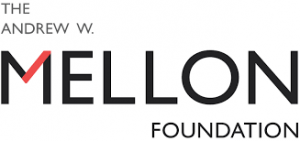 This project is funded by a grant from the Andrew W. Mellon Foundation.
This project is funded by a grant from the Andrew W. Mellon Foundation.
The Mellon AIS grant is administered by the UCR Center for Ideas and Society under the direction of PI Georgia Warnke and co-PIs Matthew Mahutga, Jennifer Nájera and Muhamad Ali. For questions on this or any other CIS project, contact georgia.warnke@ucr.edu.
